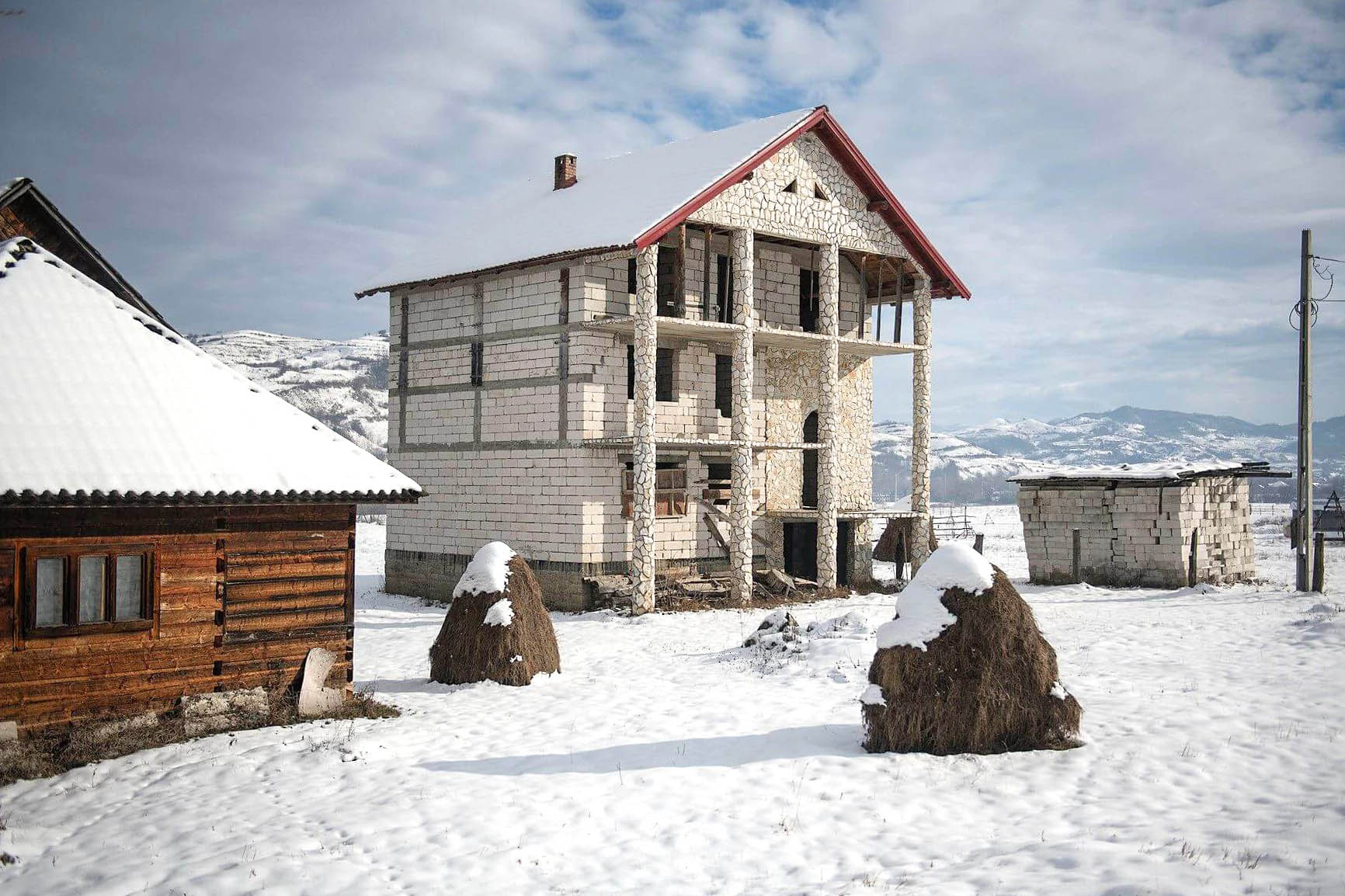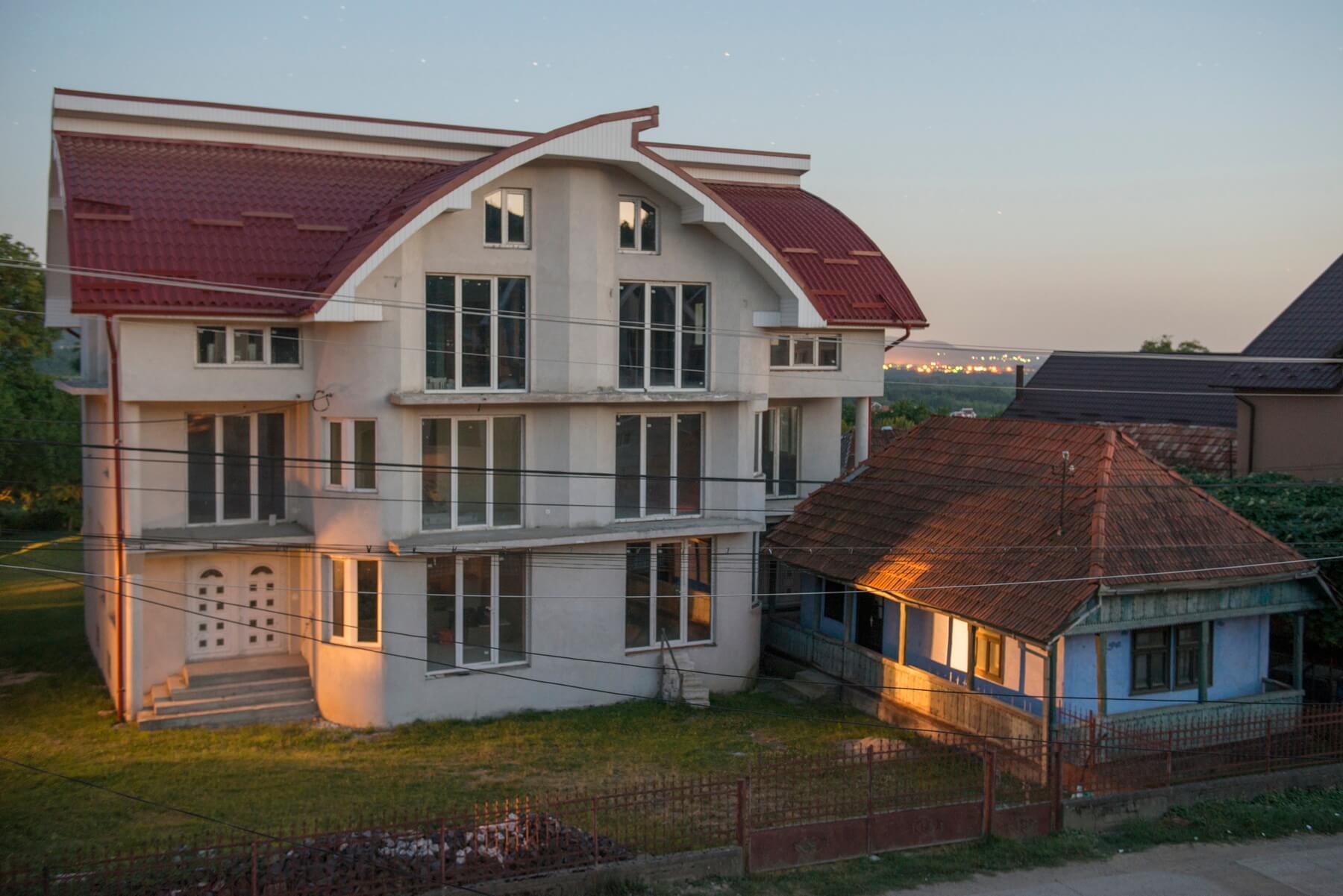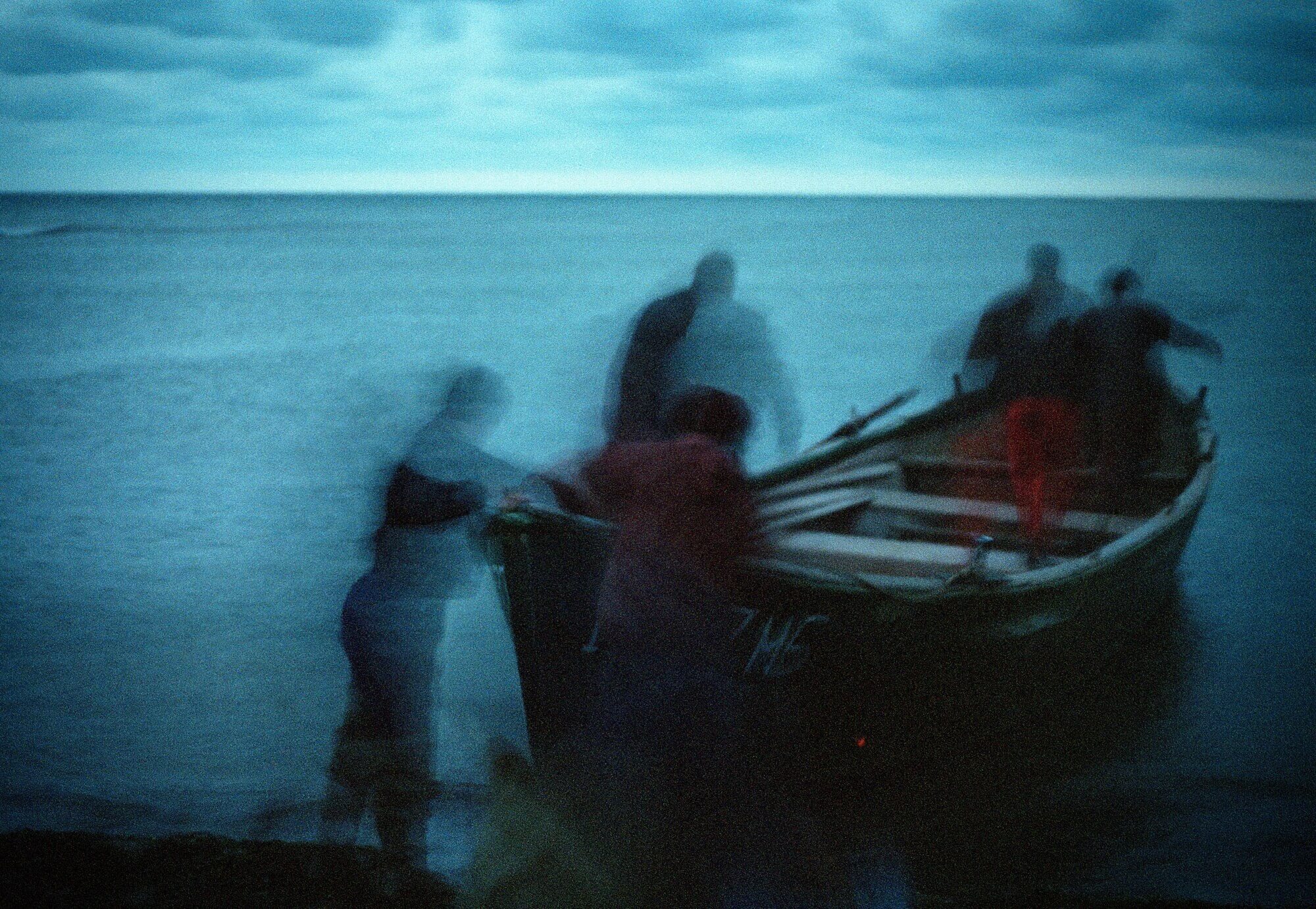
Fishermen in the open sea embarking early in the morning, 2 Mai village, Romania
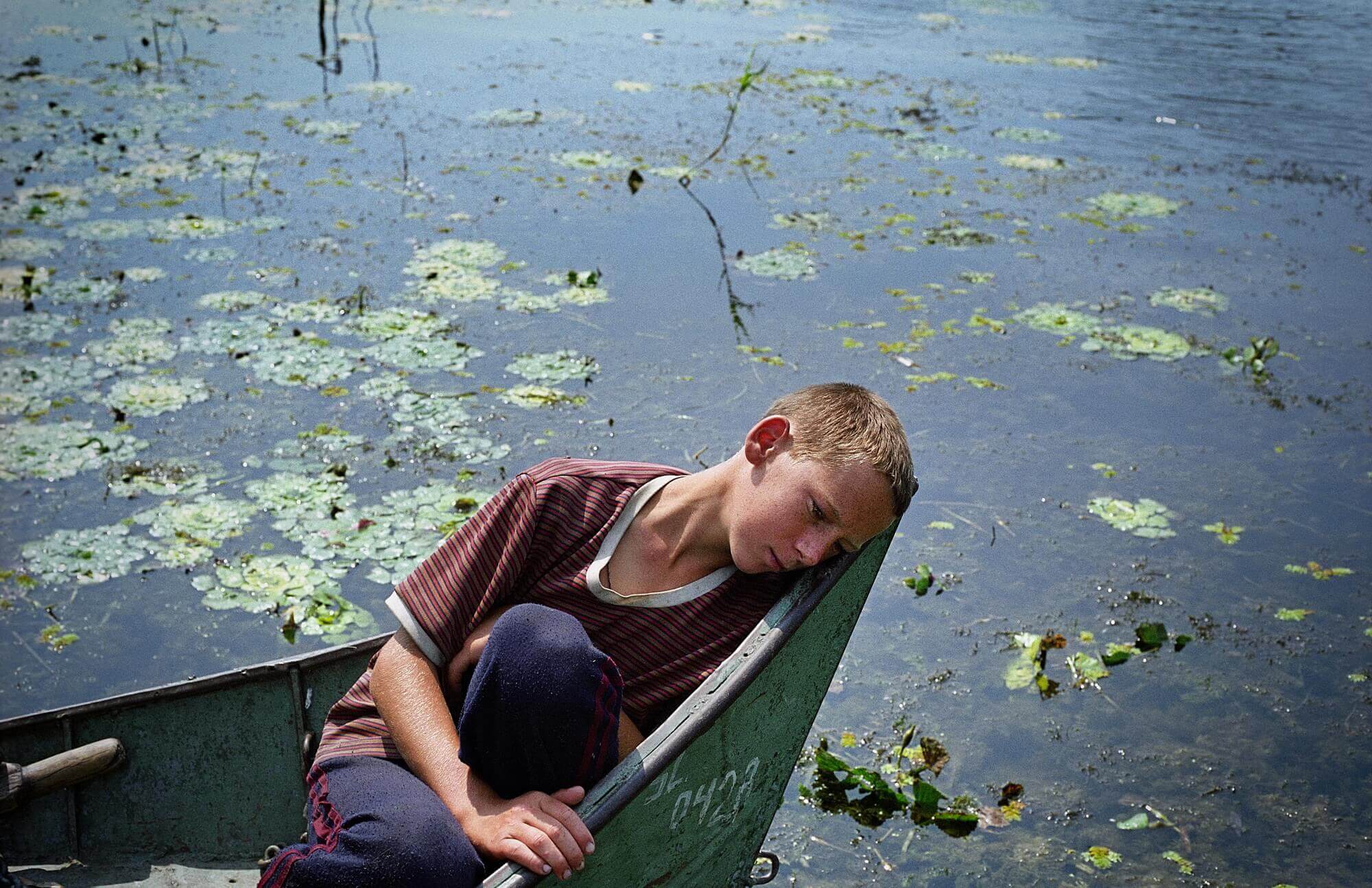
Vanea, 12 years old, sitting in a fishing boat, gave up school and joined the fishermen in Sfistofca, one of the most remote villages of Danube Delta, Black Sea. Before flowing into the Black Sea, the Danube forms the Delta which is inhabited by a Lippovan minority, which lives mainly by fishing. Romania
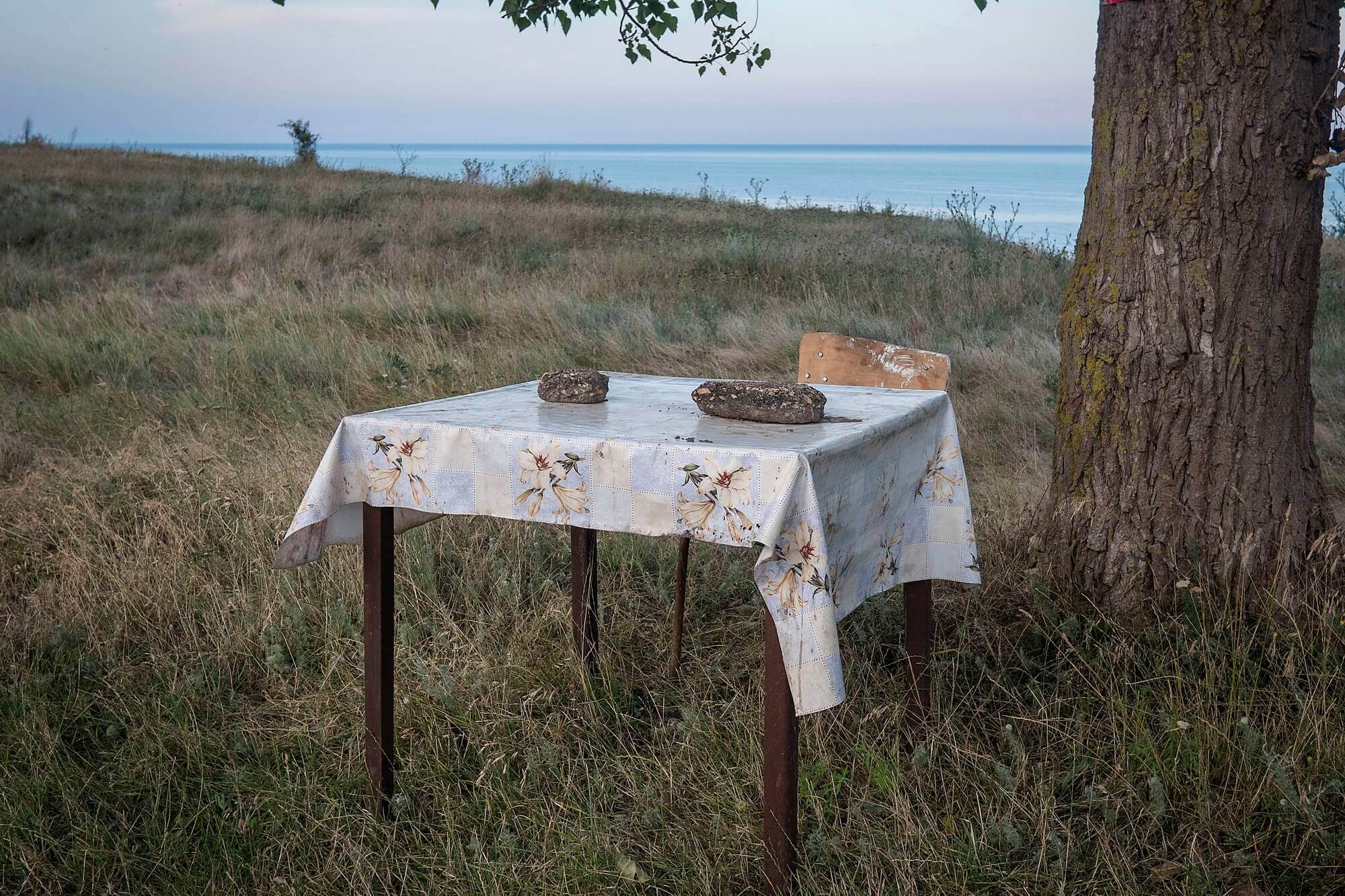
Local vegetable products are sometimes sold for tourists from this table. Krapets, Bulgaria
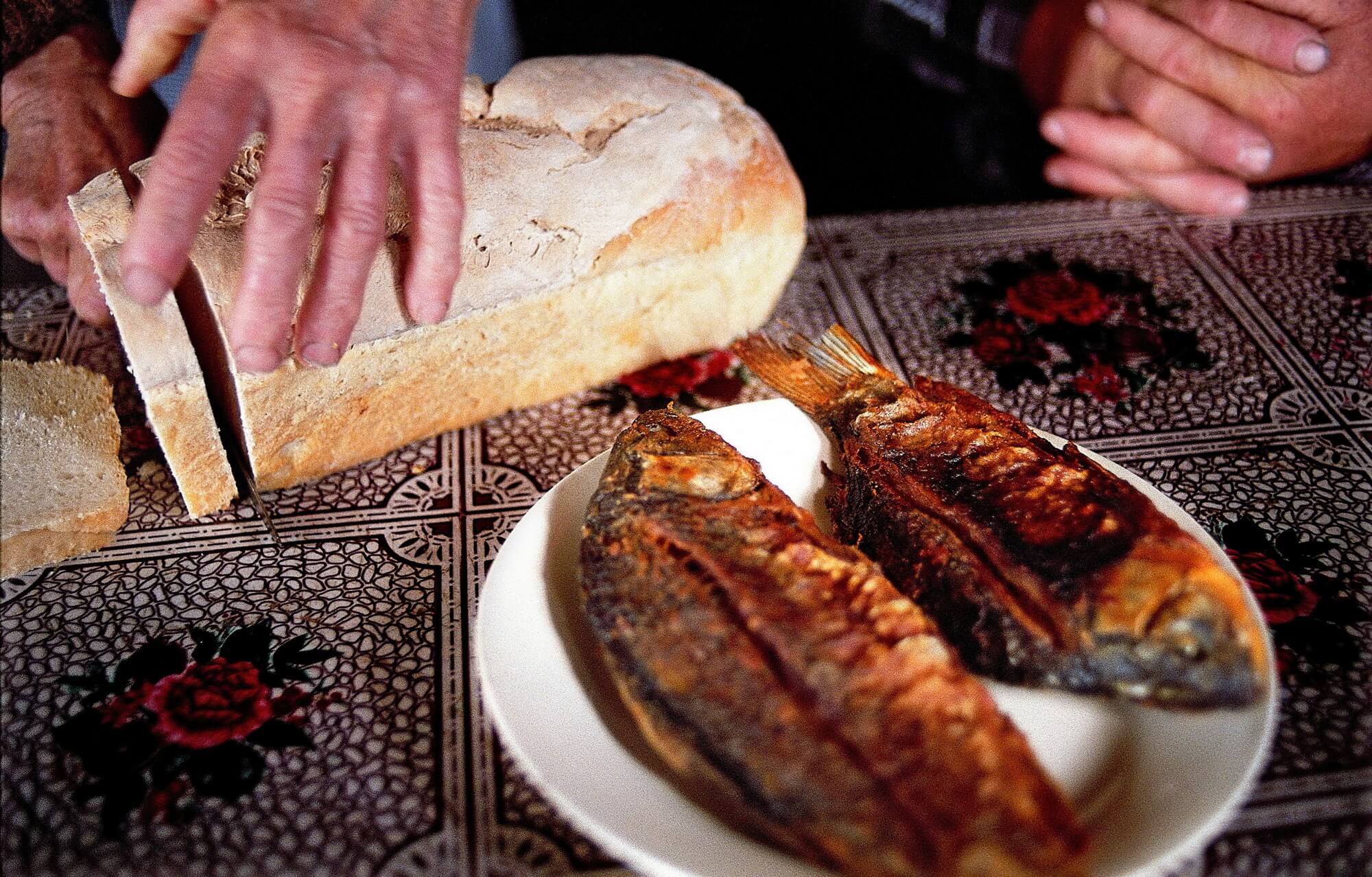
80 years old Perjoc is preparing a meal, Ceatalchioi village, Danube Delta. Before flowing into the Black Sea, the Danube forms the Delta which is inhabited mainly by Lippovans minority. Romania
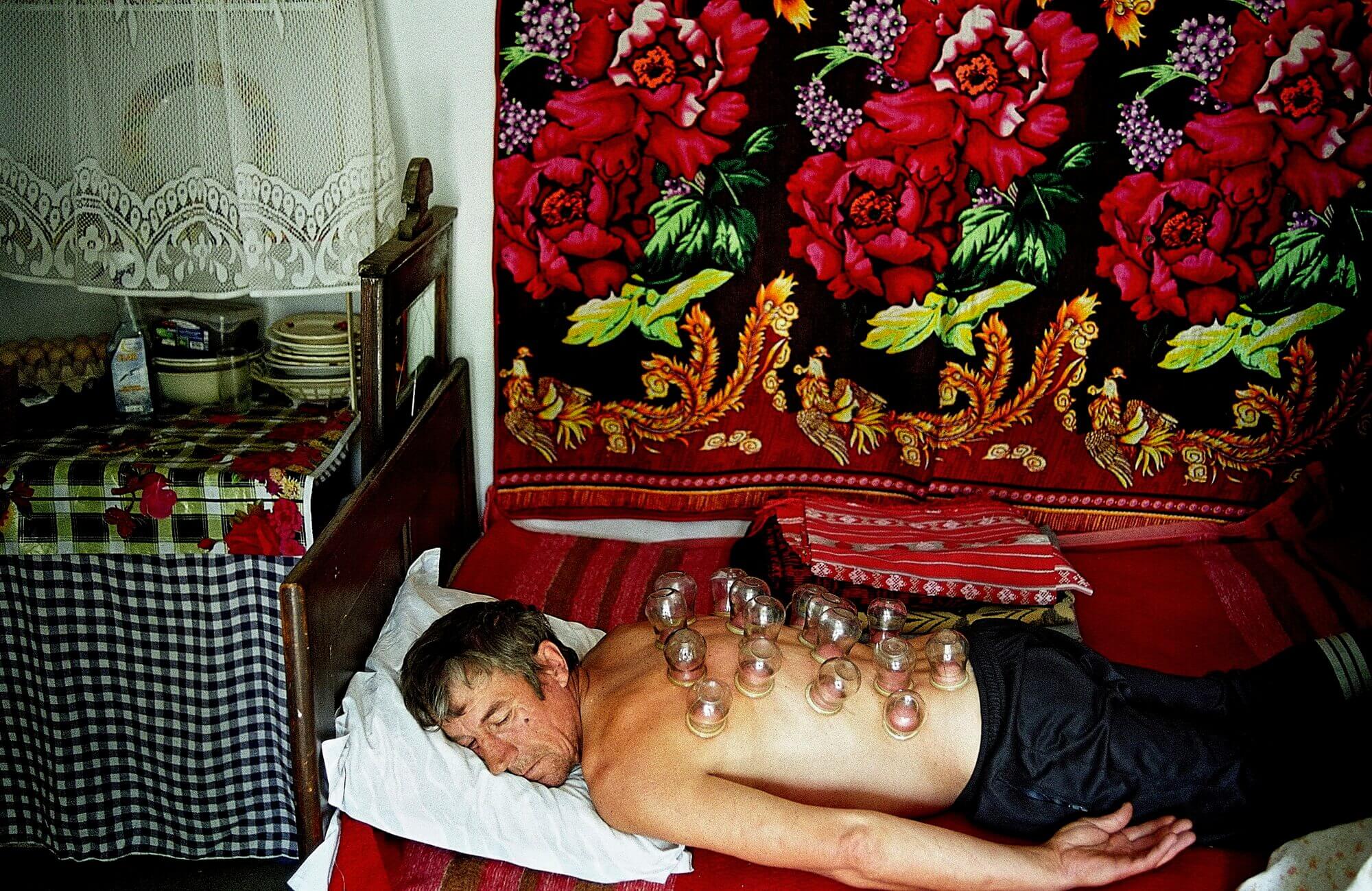
Senia Sava, 40 years old, suffering for epilepsy, receives a traditional treatment, with suction cups, to relieve his back pains caused by the flu. Romania
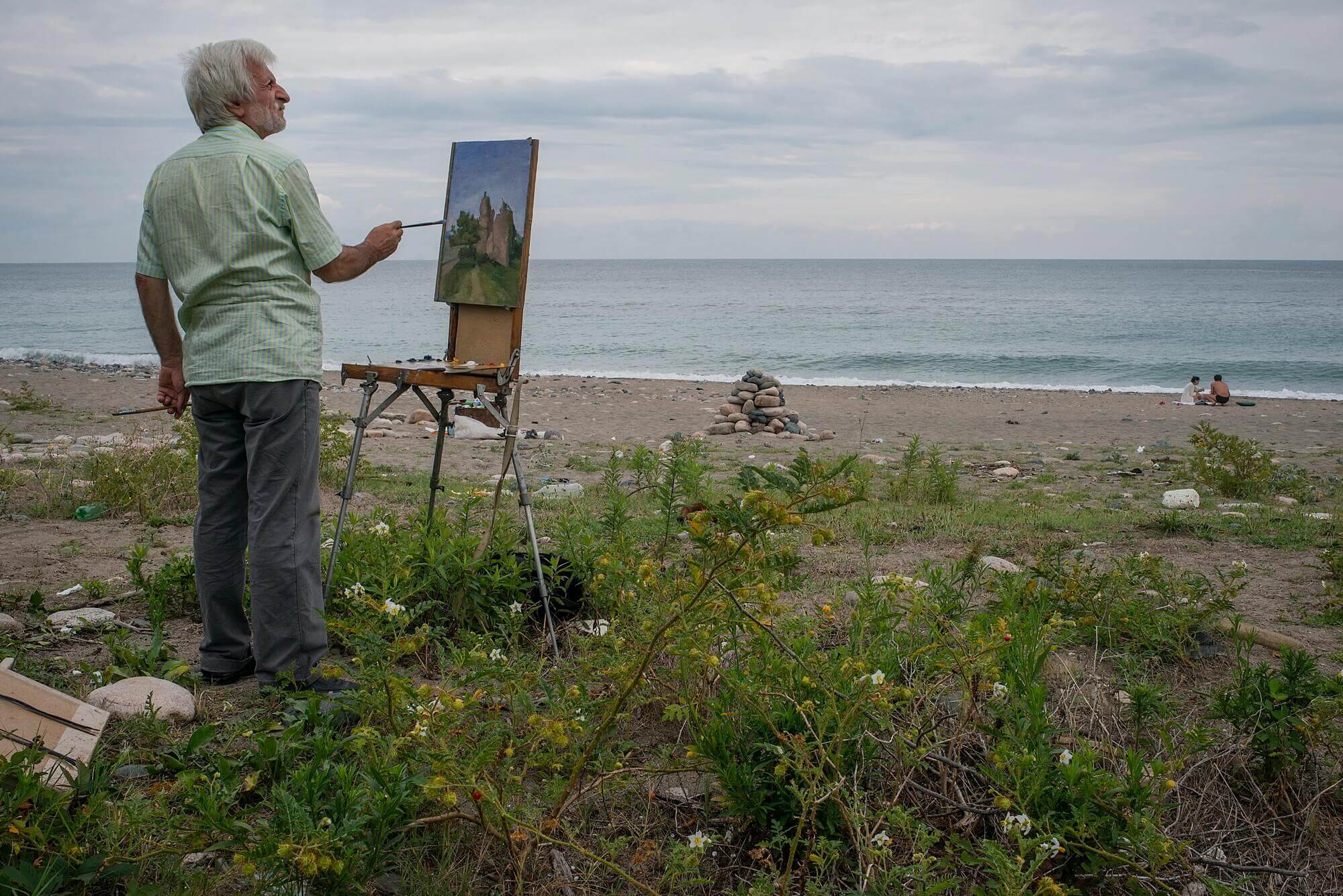
A local artist paints a wall (The Great Abkhaz wall) and the landscape near the beach in Sukhumi. Abkhazia, a breakaway region of Georgia is a cheap destination for Russian tourists, and it is estimated that almost half a million Russians visit it each year. Abkhazia
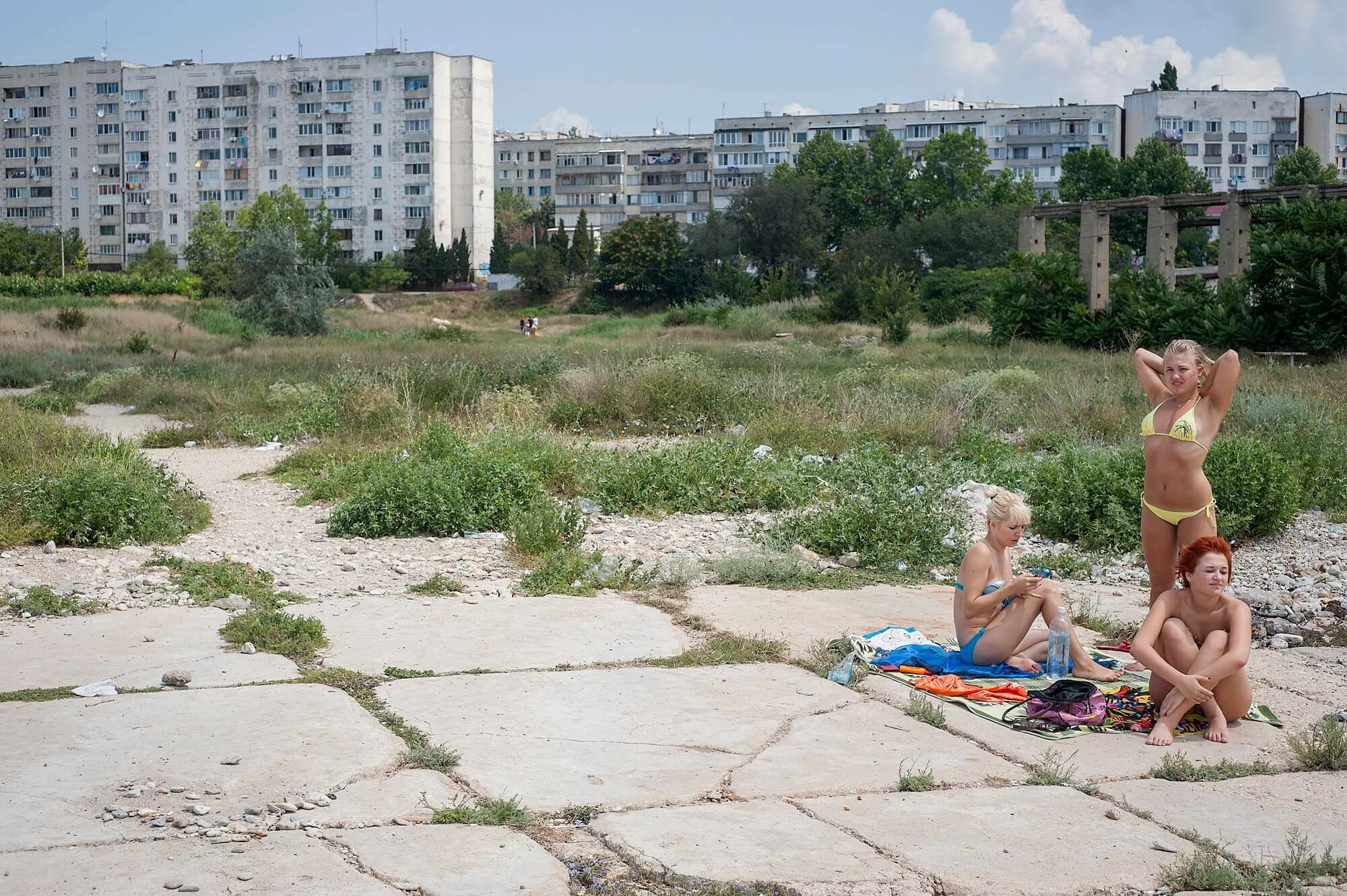
Sevastopol, Crimea
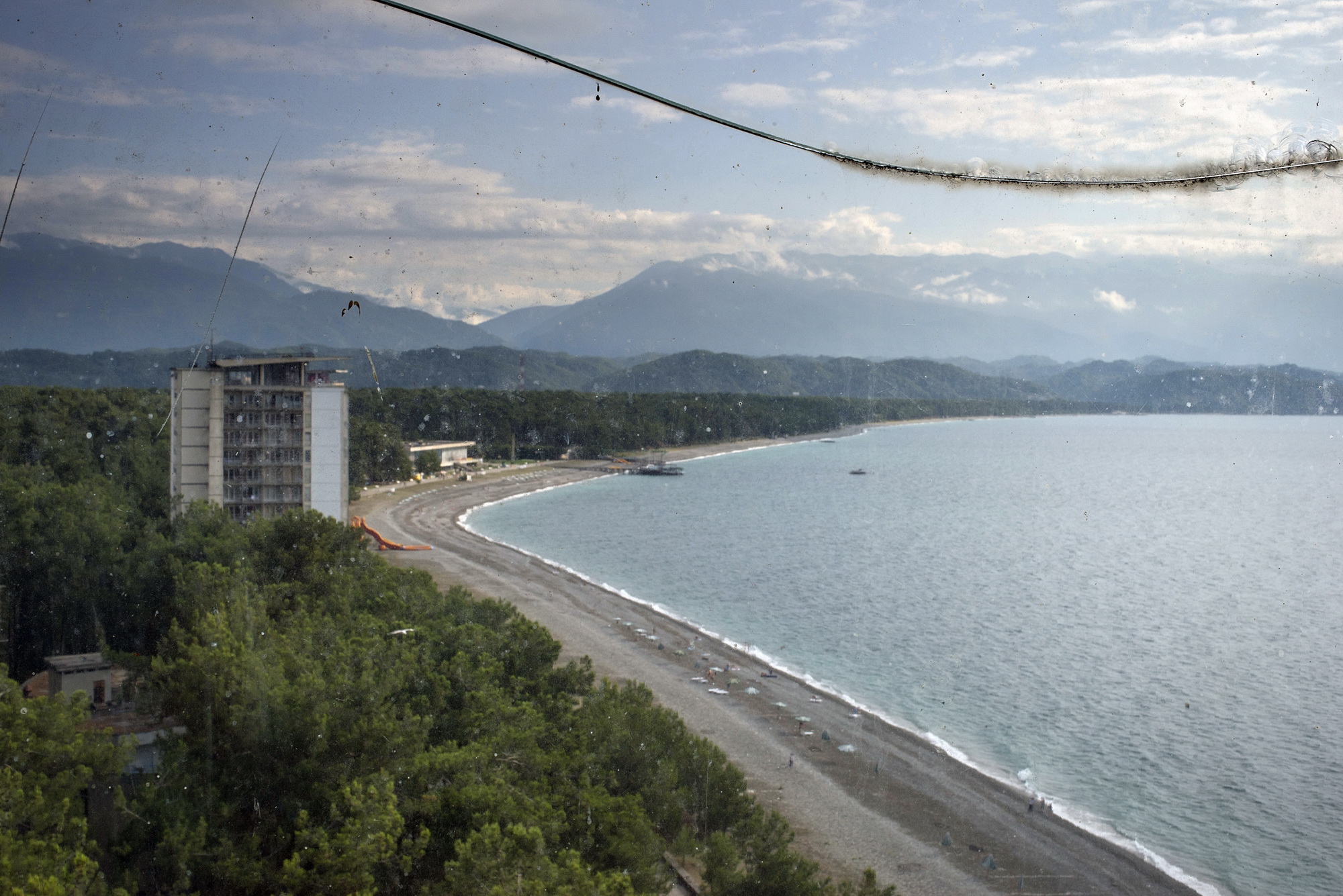
A view of the Black Sea beach in Pitsunda with mountains in the background seen through a broken window pane. Abkhazia, a breakaway region of Georgia is a cheap destination for Russian tourists, and it is estimated that almost half a million Russians visit it each year. Abkhazia
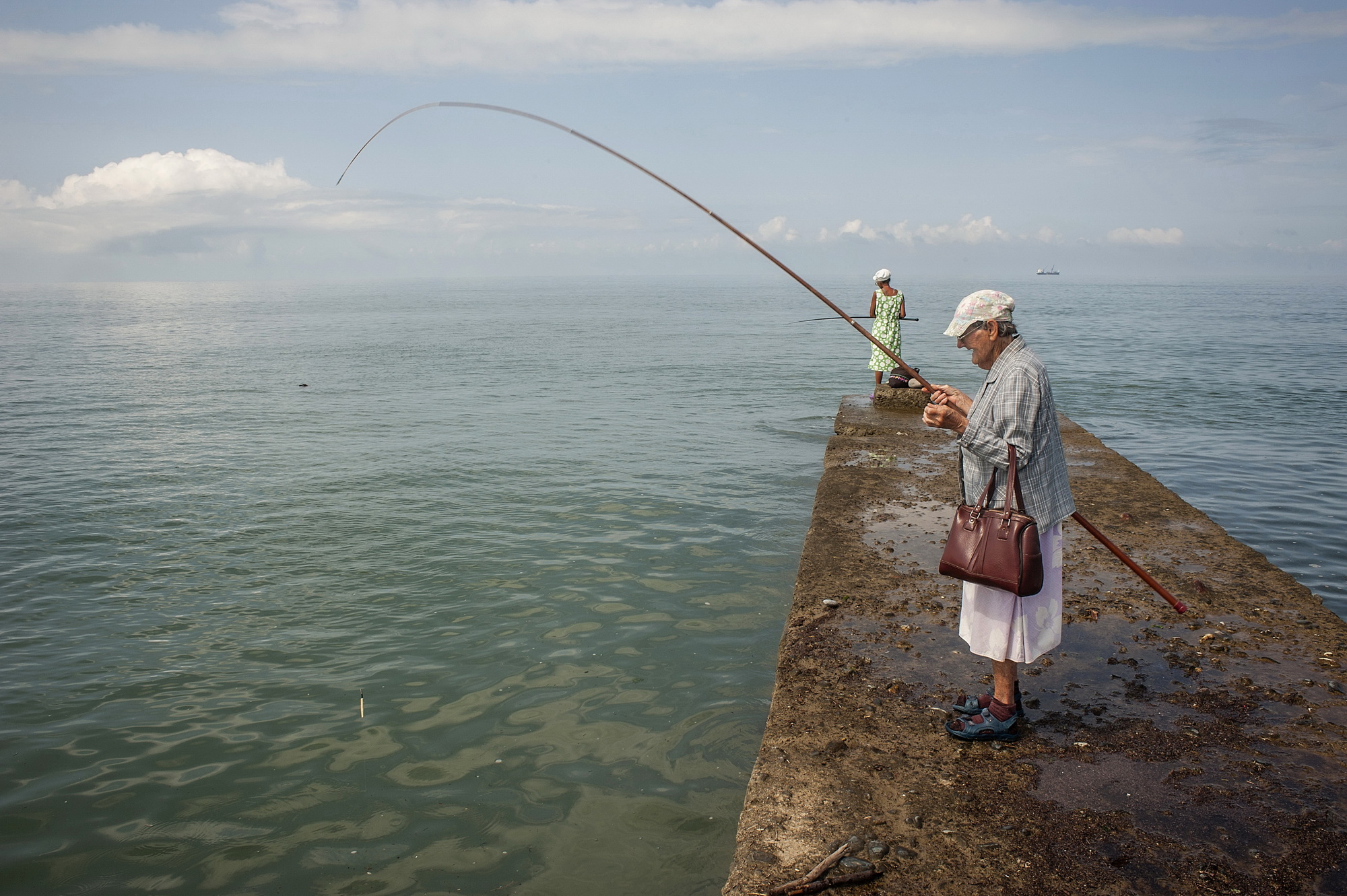
Nina (front) and her daughter fish from a concrete jetty. They need the fish to supplement their meagre diet. Nina gets EUR 50 from her state pension. She used to work in a local fish canning factory but it was destroyed in the separatist war of 1992 - 1993 when Abkhazia effectively seceded from Georgia. Abkhazia
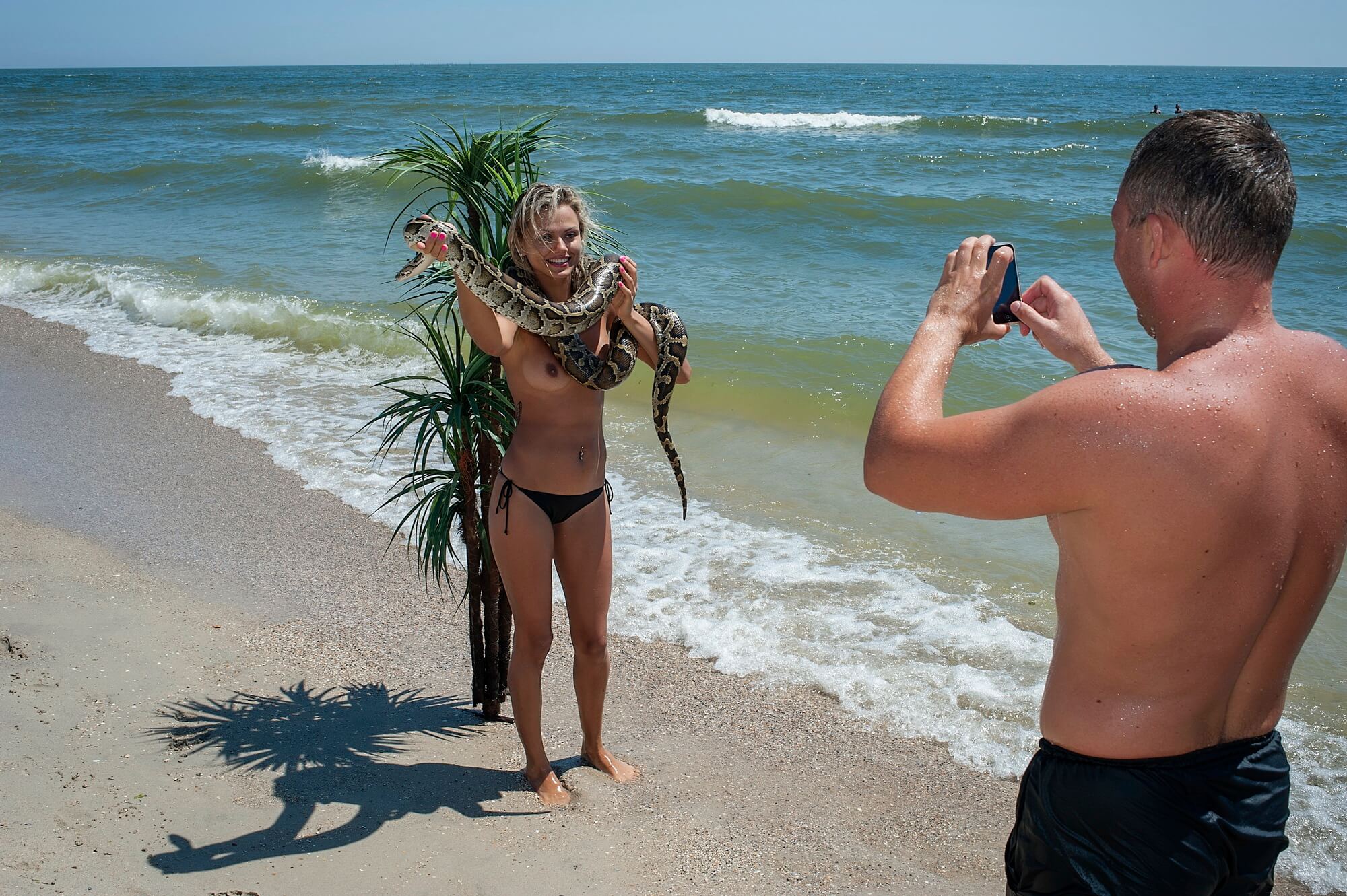
A female tourist, holding a rented snake, poses for a photograph on a beach in front of a plastic palm tree in the cheap Black Sea resort destination of Zatoka. Ukraine
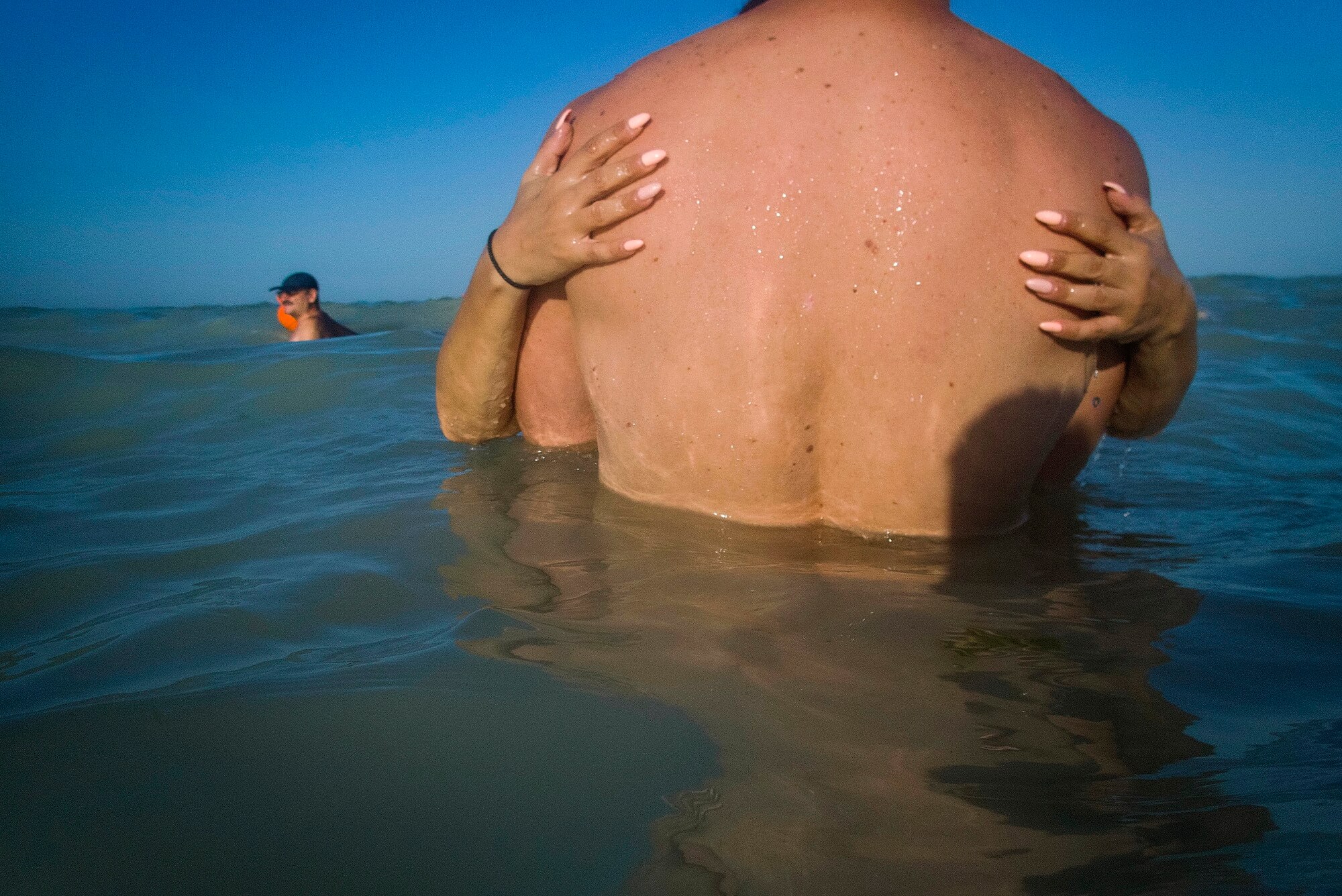
A couple embraces in the sea, Costinesti, Romania
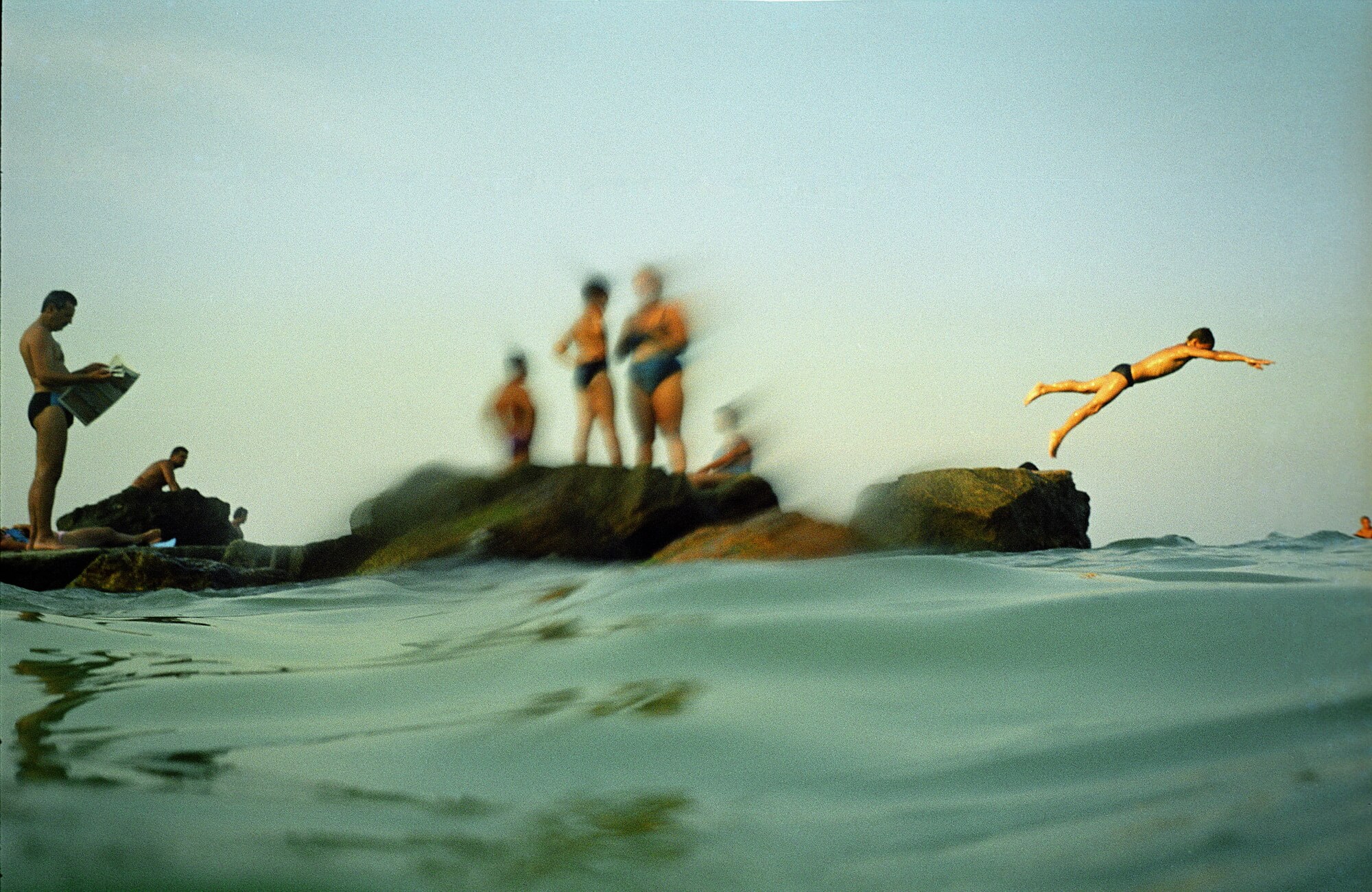
Seaside scene: a boy jumps from a ferry, Eforie Sud, Romania
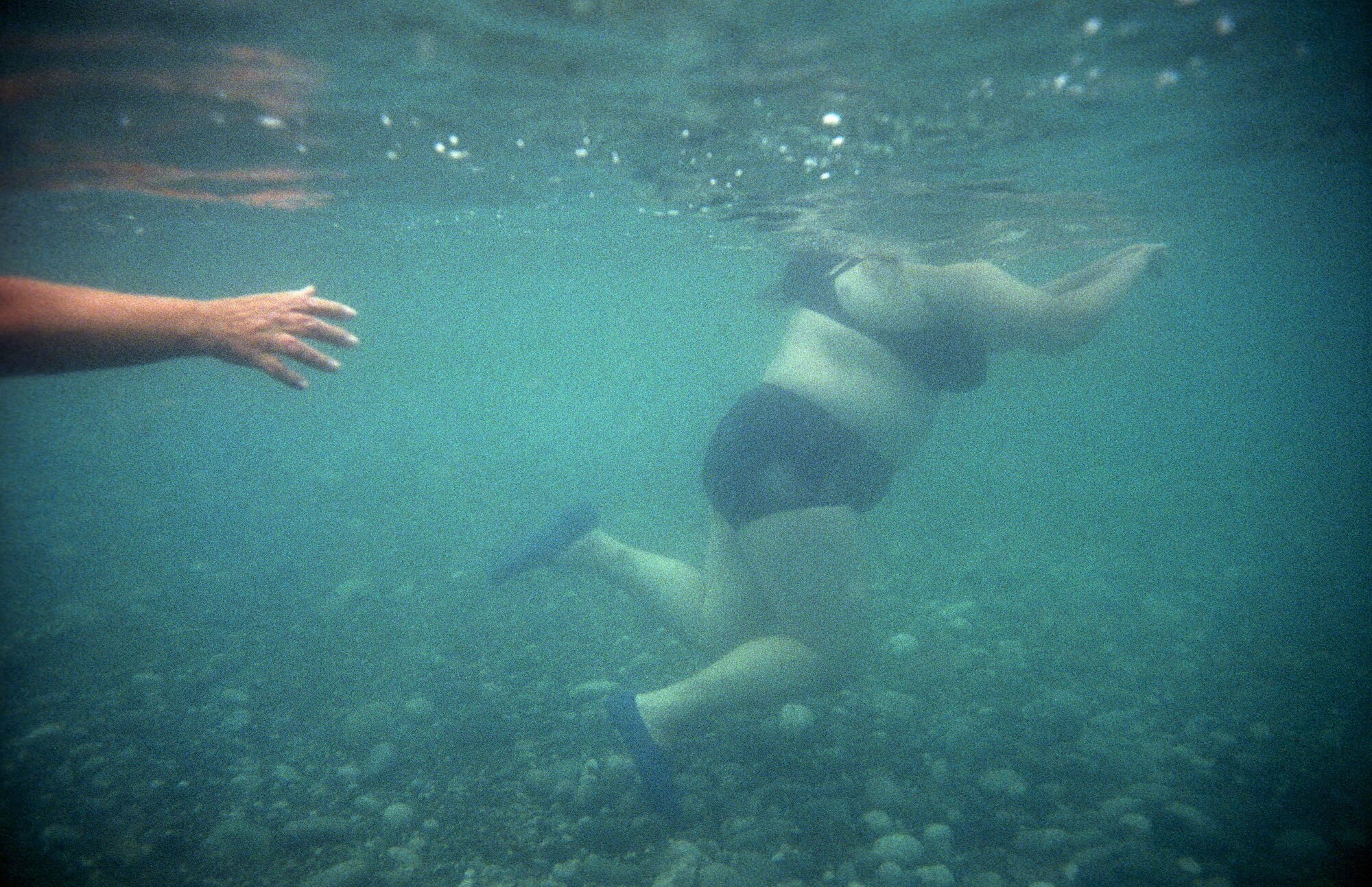
A man swims in the Black Sea in Pitsunda resort at the Black Sea. Abkhazia
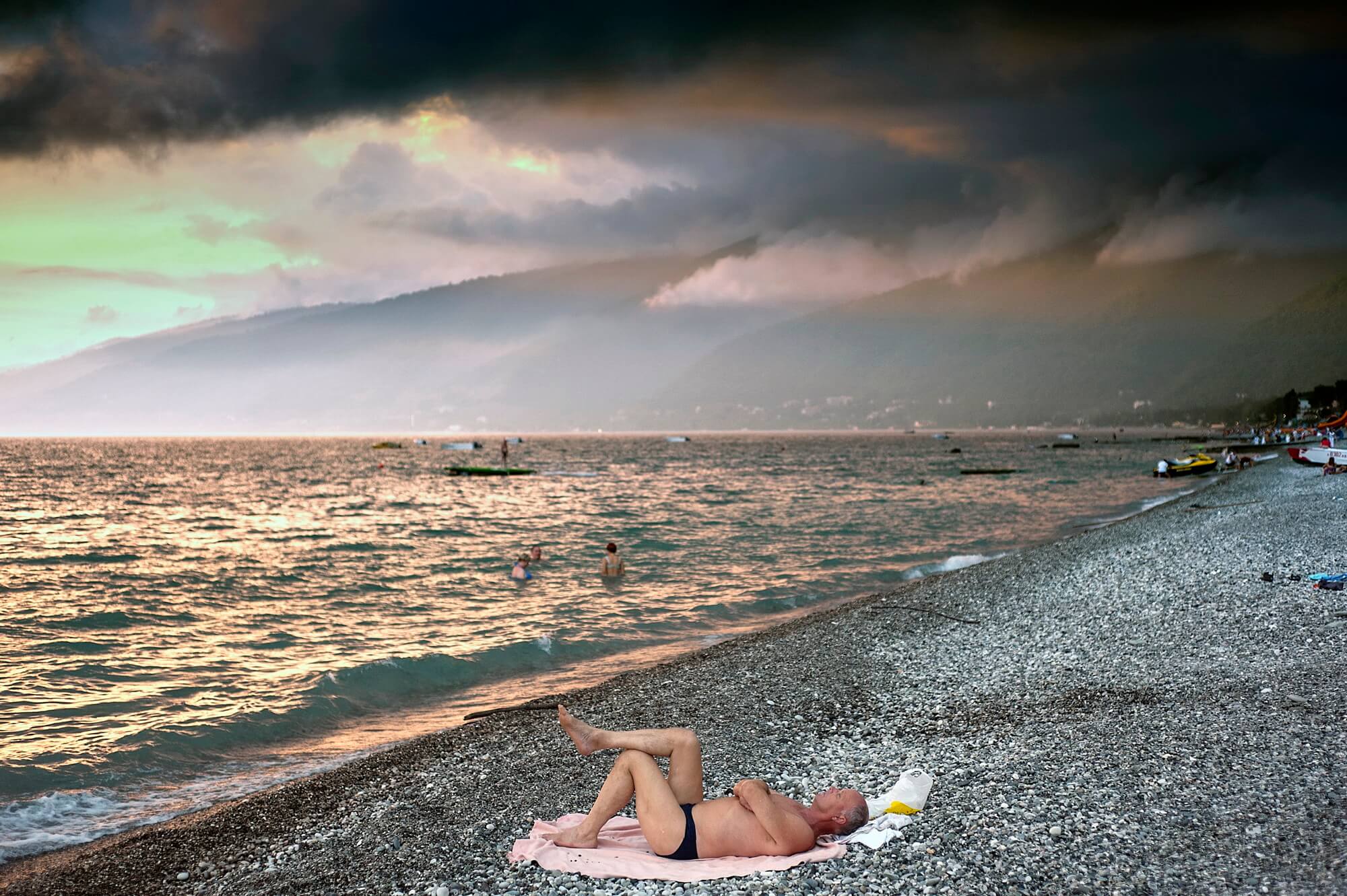
A man in swimming trunks lies on the beach in Gagra, the busiest resort in Abkhazia, very close to Sochi Olympic site and Russian border.
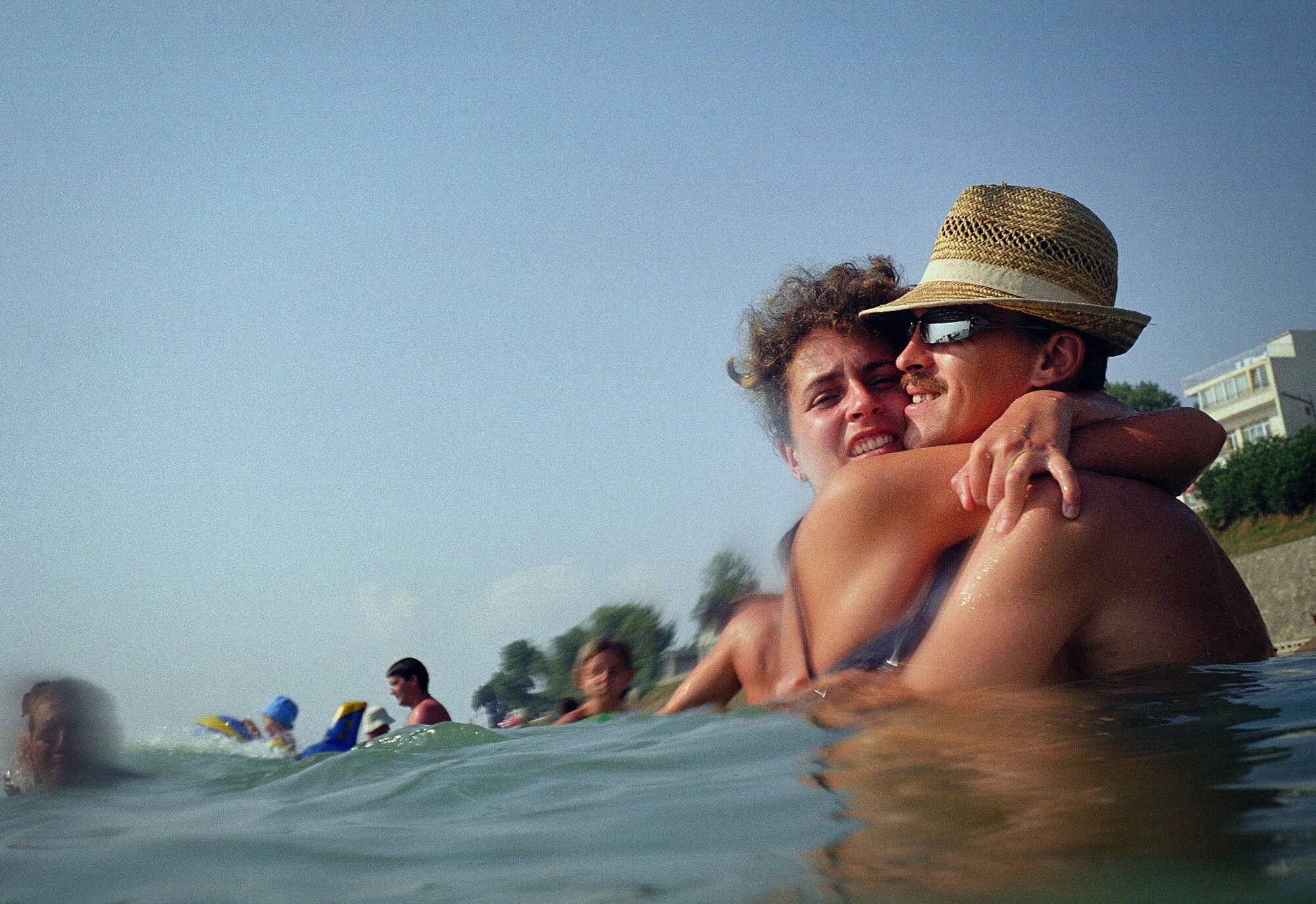
A couple embraces in the Black Sea, Eforie Nord resort, Romania
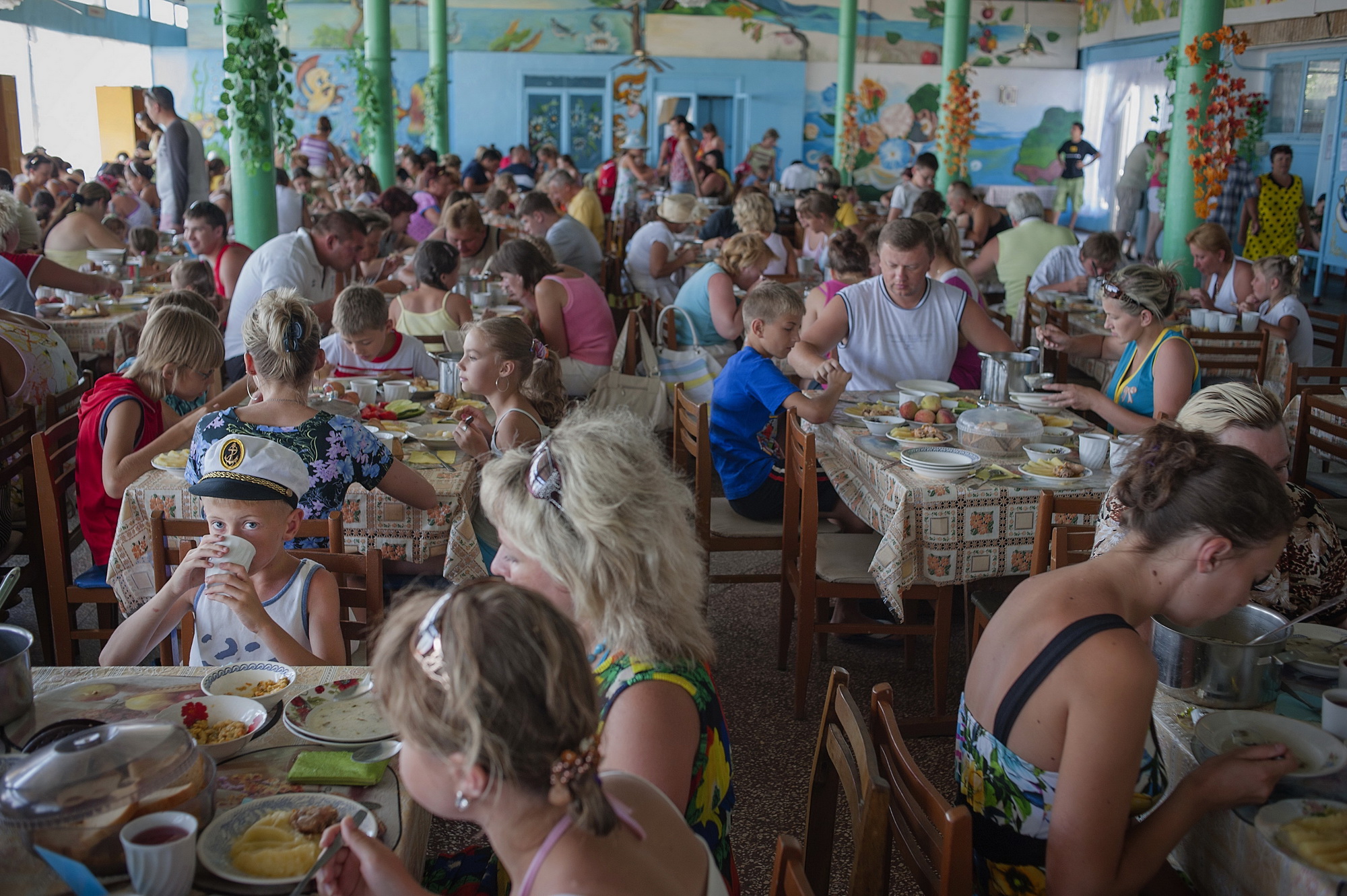
Tourists eat lunch in a canteen in Zatoka, a cheap Black Sea resort destination in Ukraine popular with Moldovians. Ukraine
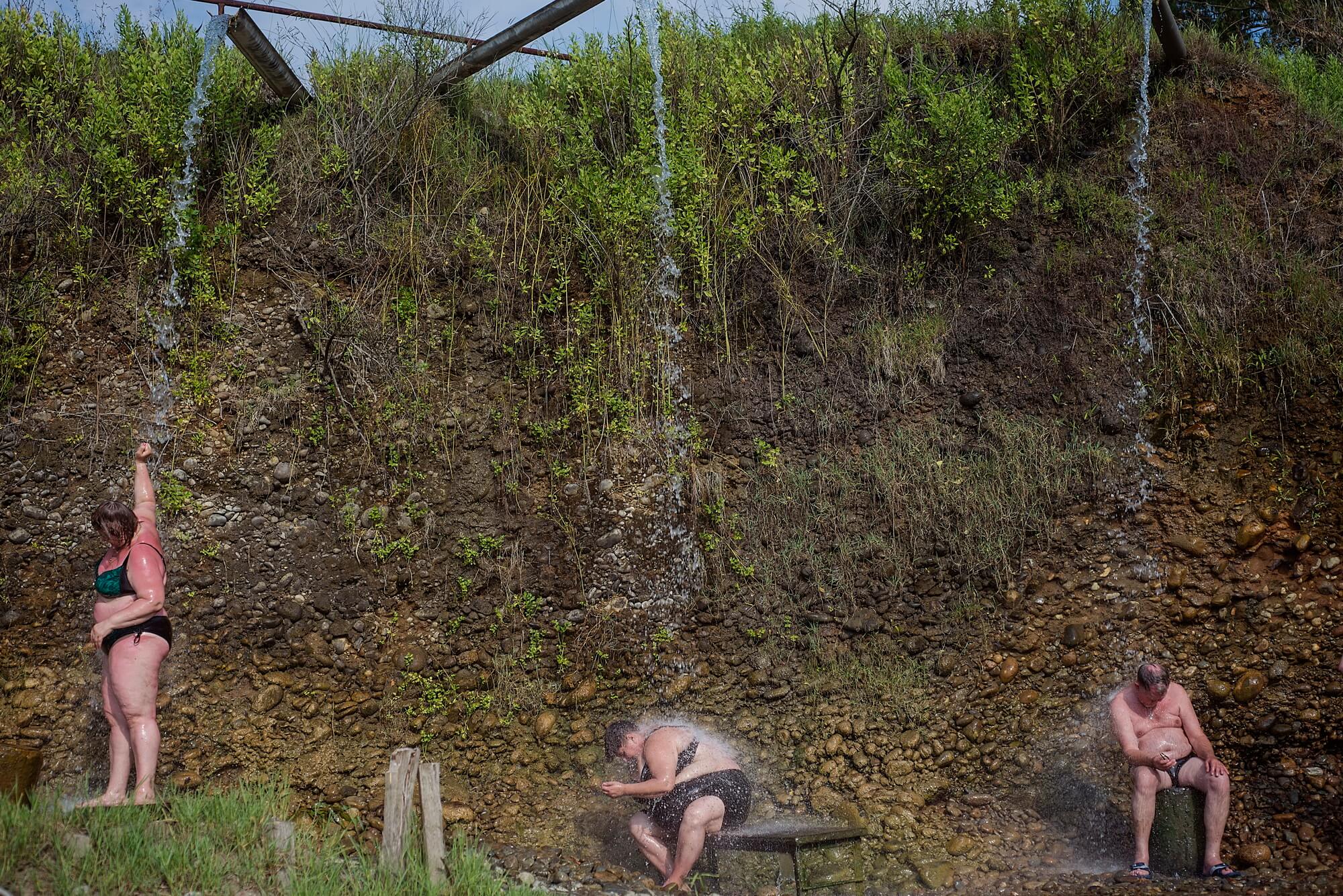
People sit under streams of hot water pouring out of pipes at the Kyndyg thermal springs. Abkhazia
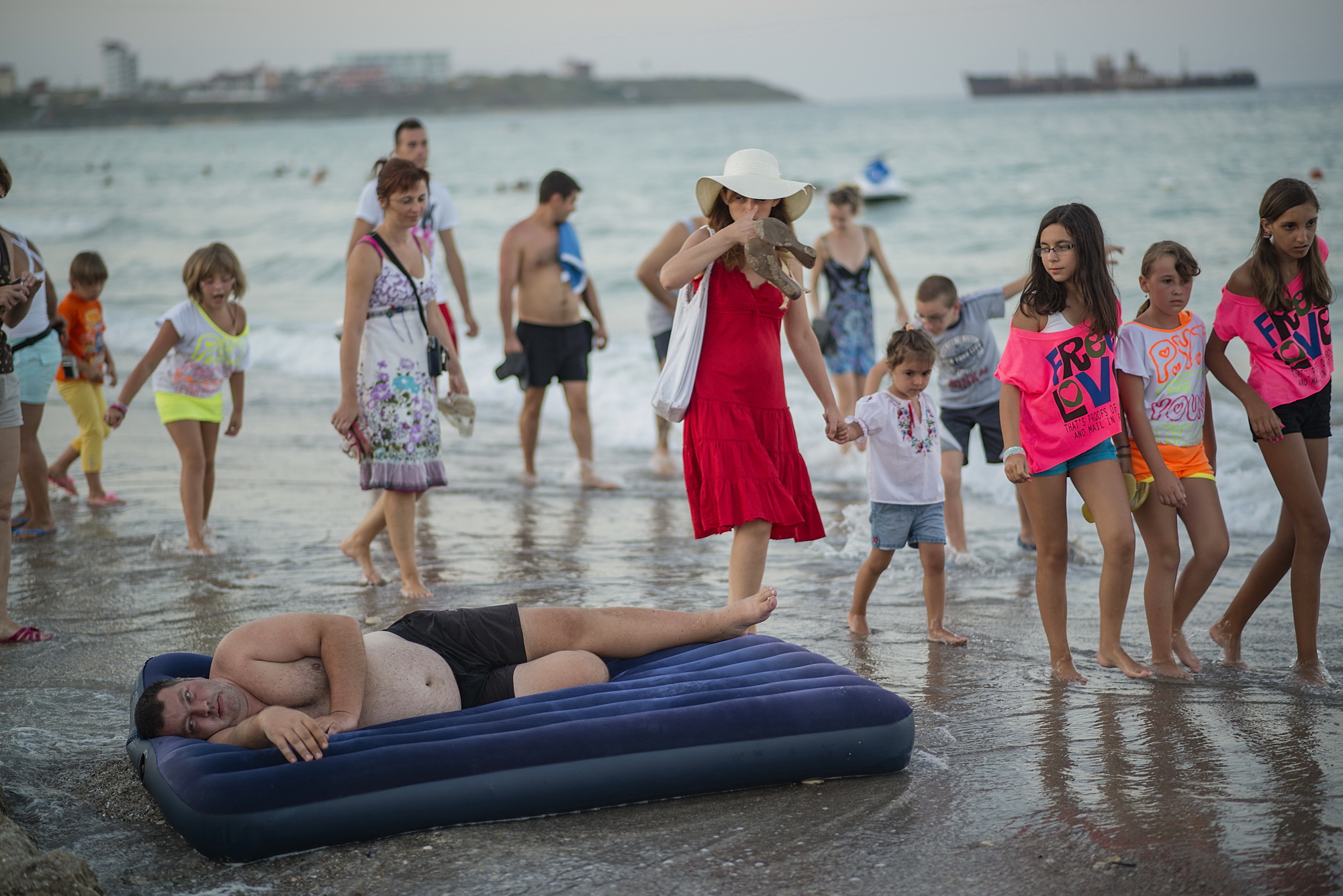
A nudist couple near the wreck of Evanghelia (The Gospel) Greek shipwrecked in 1968 in the Black Sea. After various failed attempts to remove it from the water, it eventually become the symbol of the resort - a crowded mixture of middle class and hippies. Costinesti, Romania
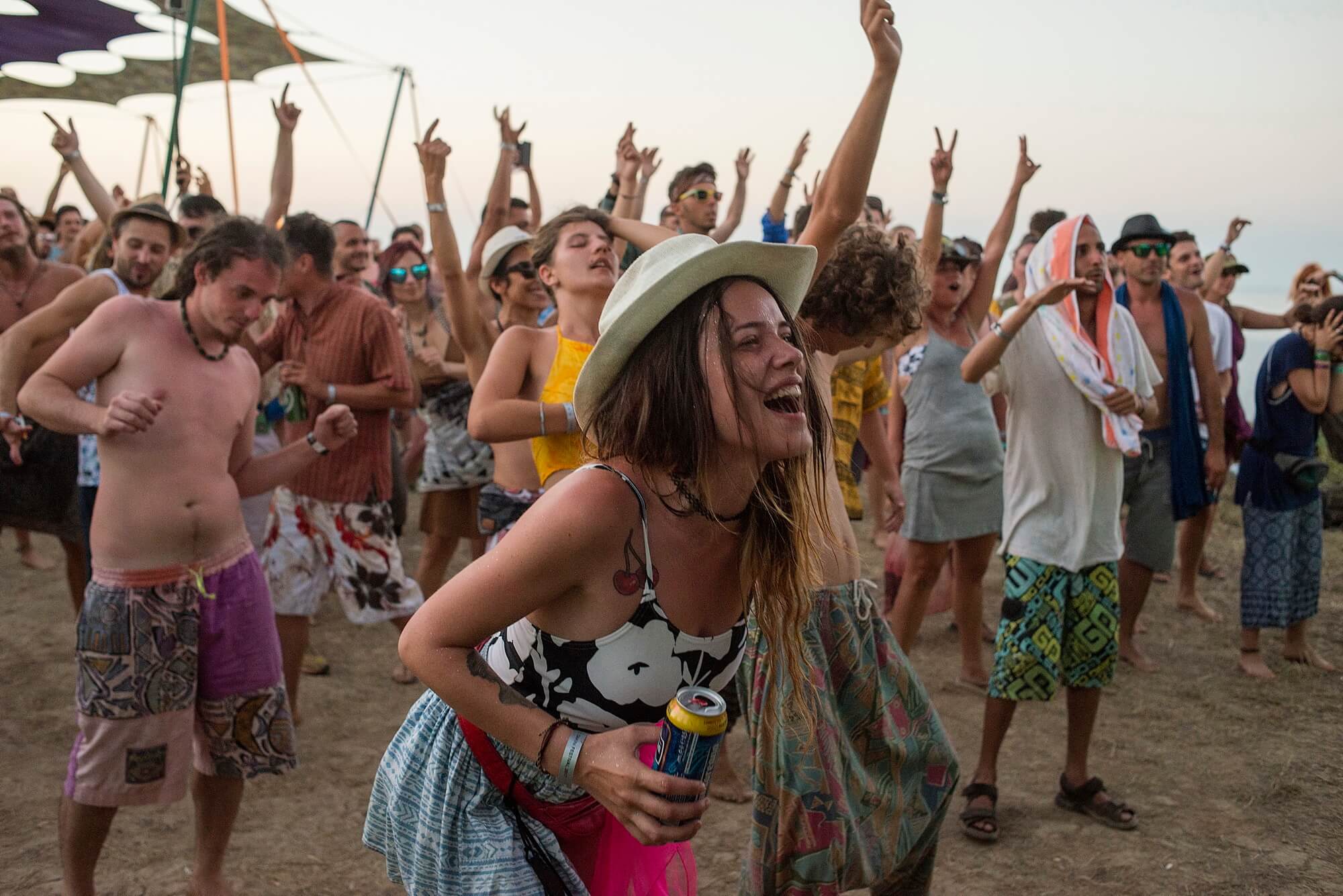
Music beach festival, Tuzla, Romania
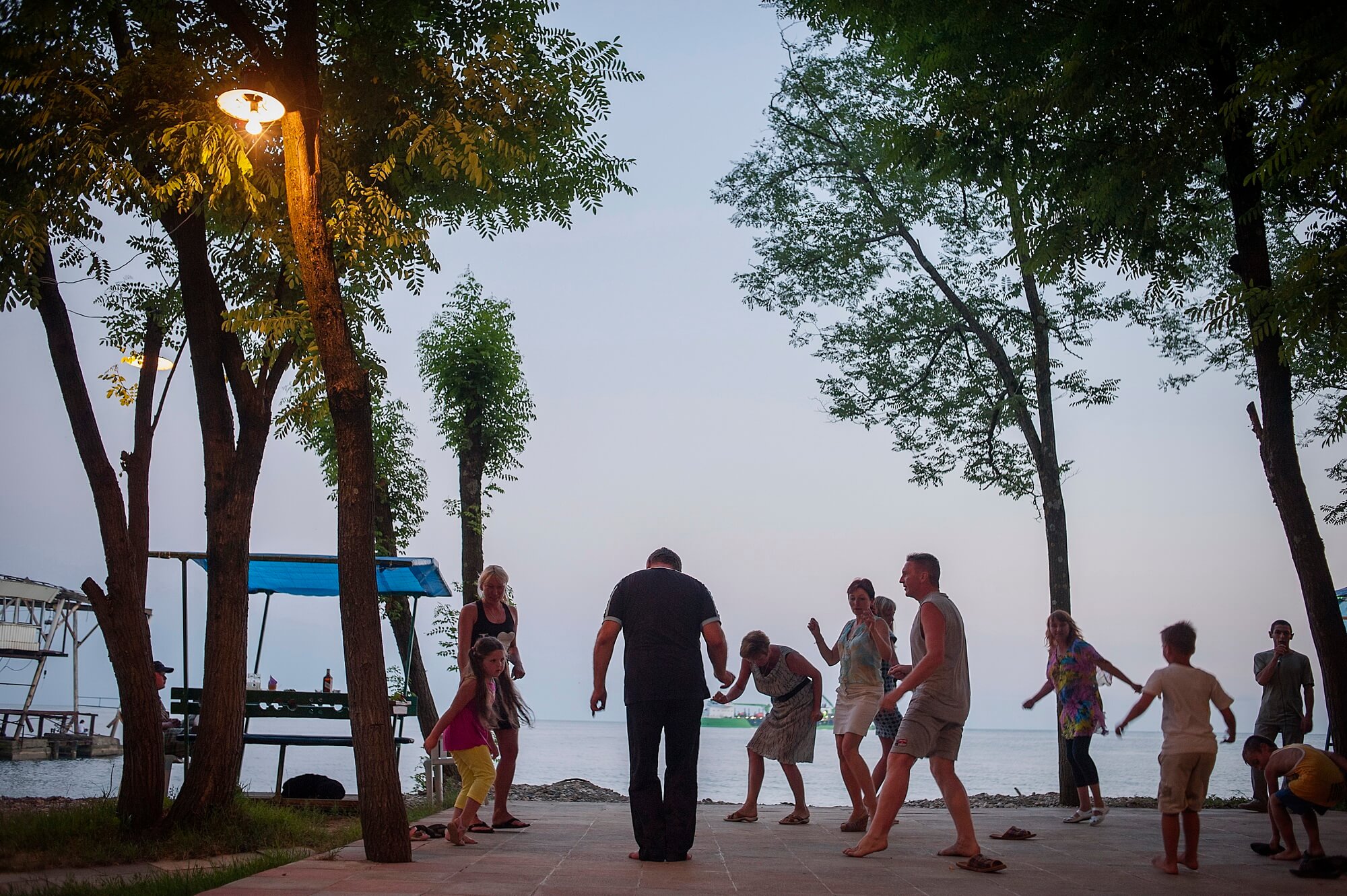
Russian tourists dance near the shore at the Sukhumi Red Army Sanatorium, a holiday complex owned by a Moscow army regiment. It is still used by Russian army officers and their families, but with recent instability in the region, it is now protected by camouflaged tanks. Abkhazia is a cheap destination for Russian tourists, and it is estimated that almost half a million Russians visit each year. Abkhazia
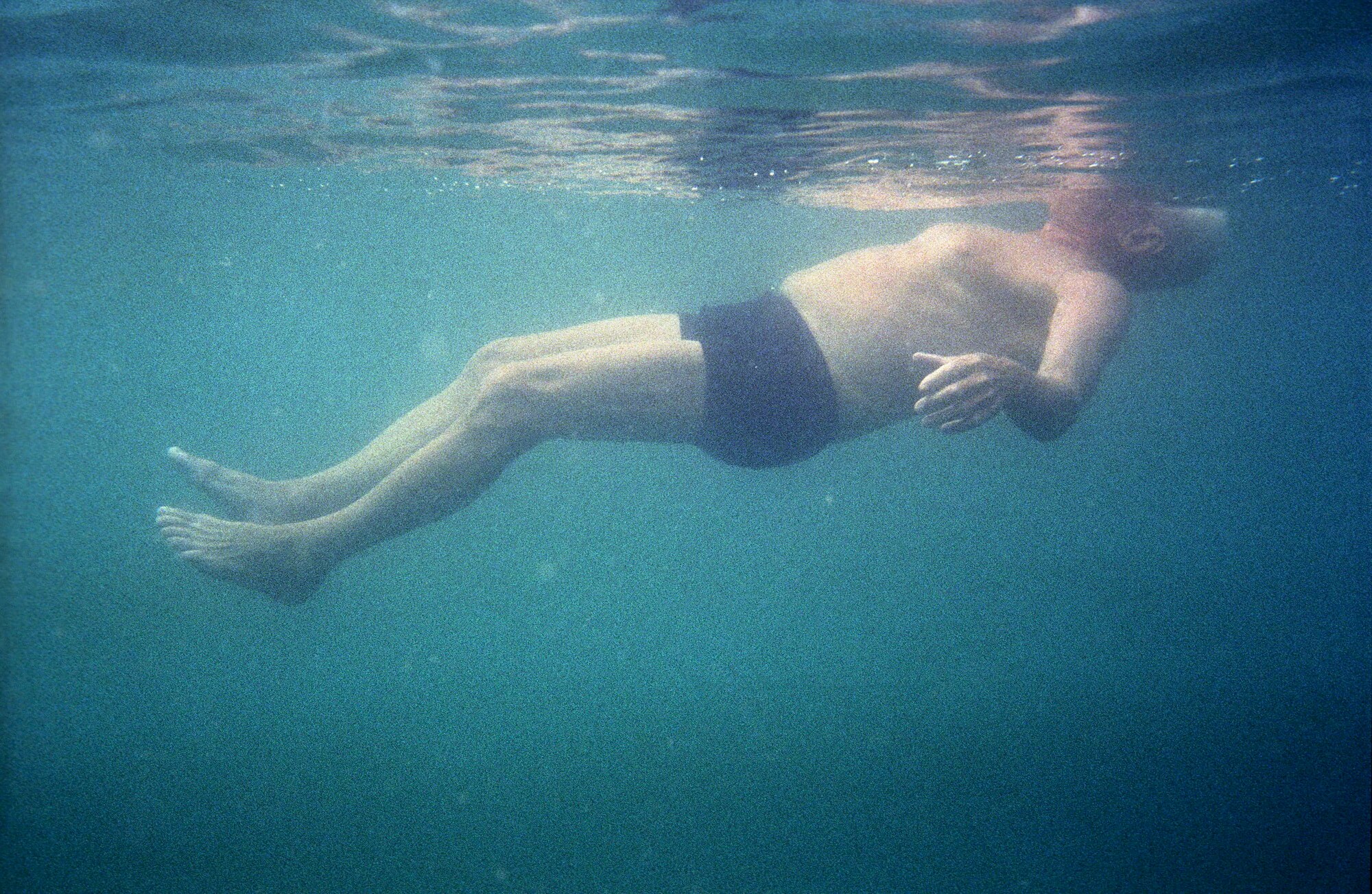
A man swims in the Black Sea in Pitsunda resort at the Black Sea. Abkhazia
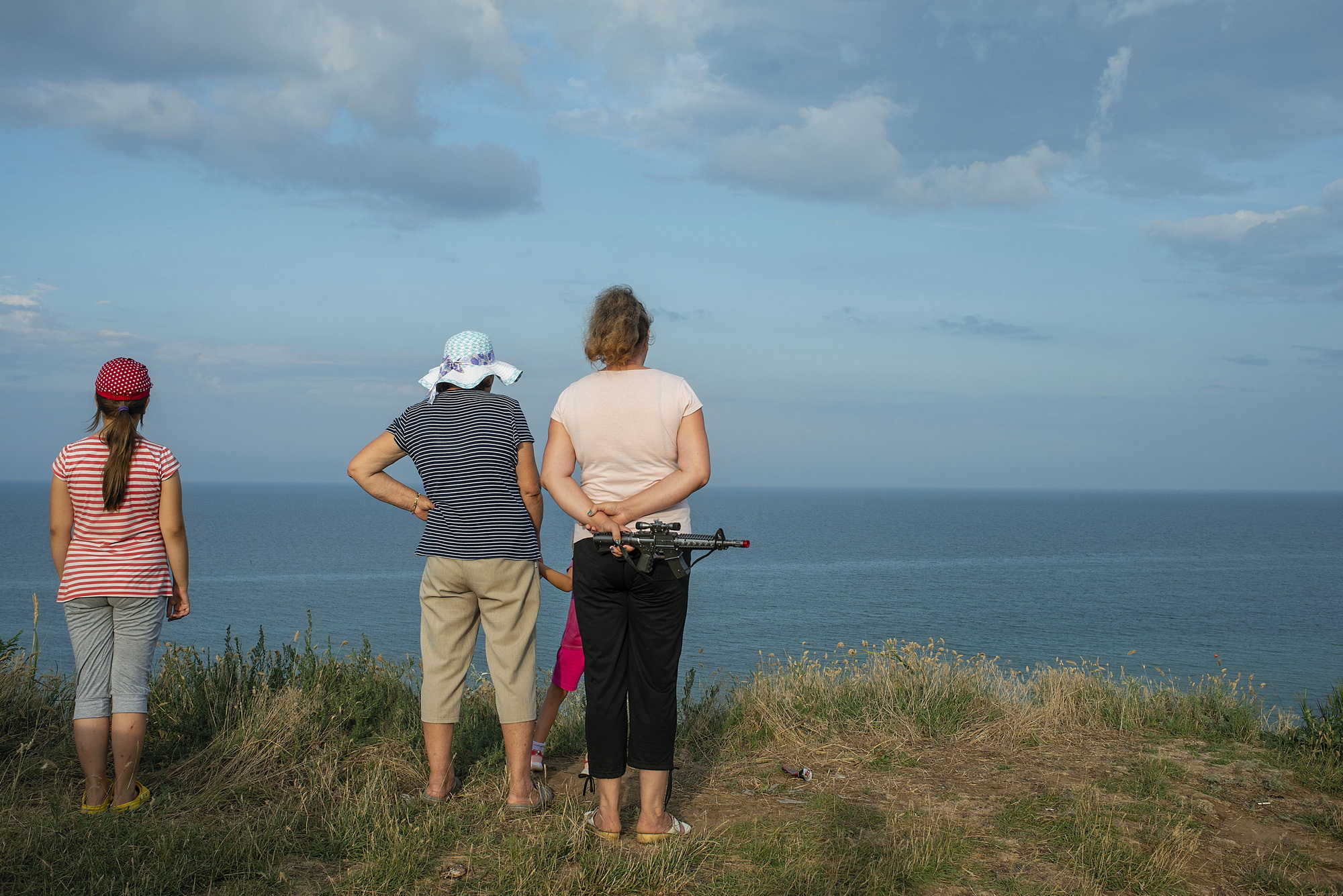
Tourists with a machine gun toy are observing the sea from a panorama viewpoint, Tuzla, Romania
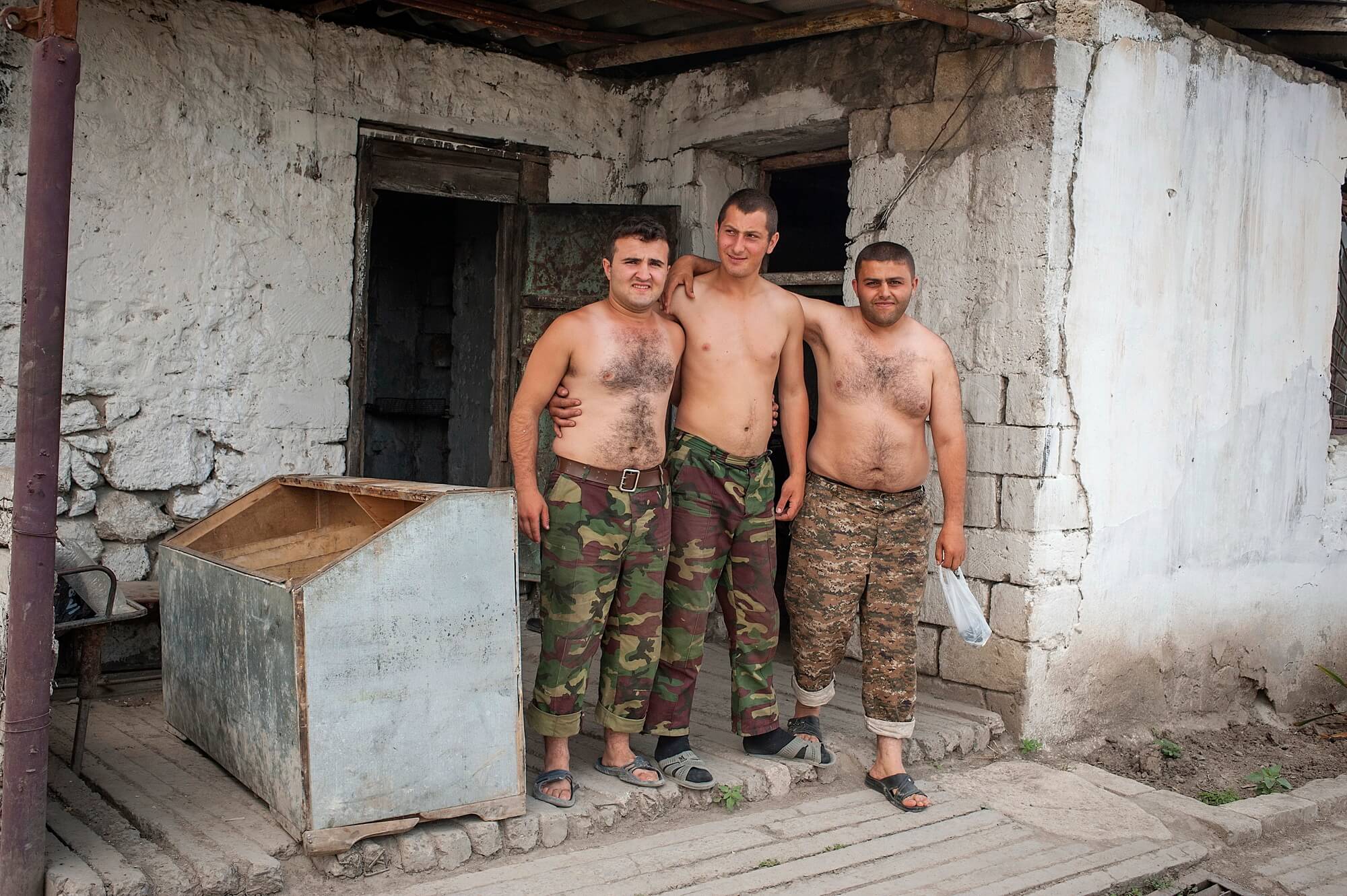
A group of soldiers belonging to the armed forces of Nagorno-Karabakh at a border post with Azerbaijan.
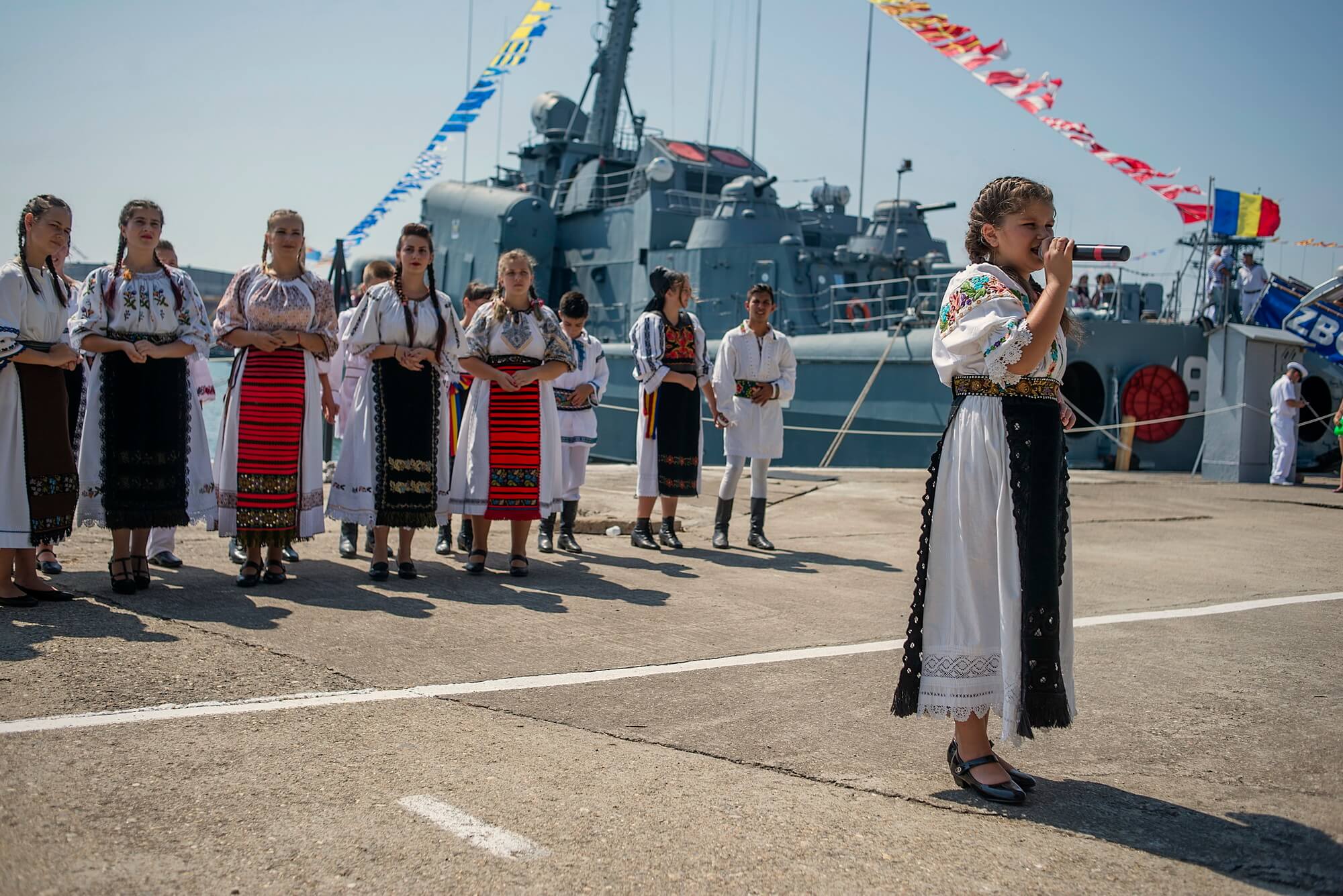
Youths from a folk orchestra singing patriotic songs on Navy Day, an annual event where the navy opens up various of its facilities to the public who are free to come and examine equipment and weapons and be entertained by the sailors. The Navy hopes the day will encourage recruits. Mangalia, Romania
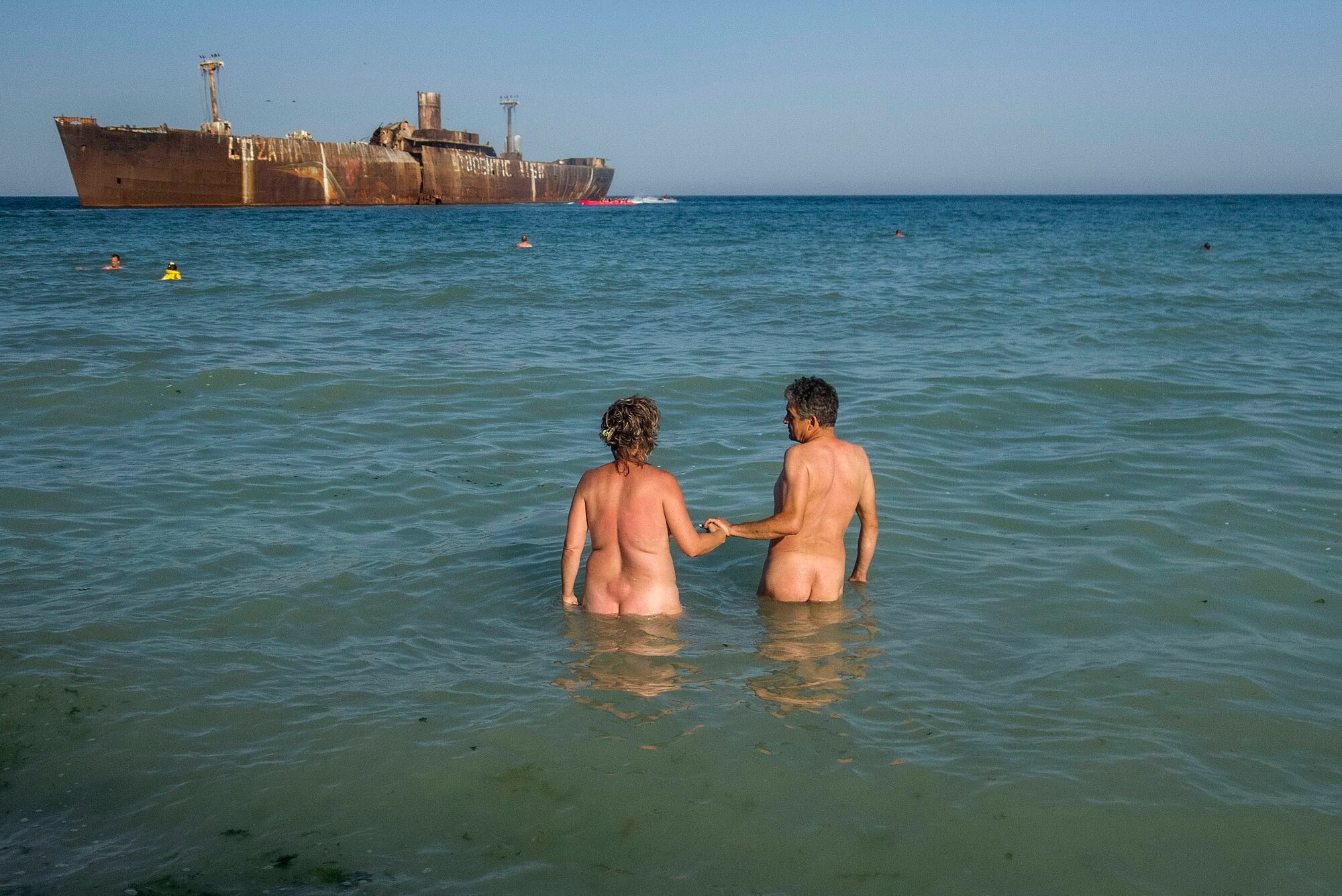
A nudist couple near the wreck of Evanghelia (The Gospel) Greek shipwrecked in 1968 in the Black Sea. After various failed attempts to remove it from the water, it eventually become the symbol of the resort - a crowded mixture of middle class and hippies. Costinesti, Romania
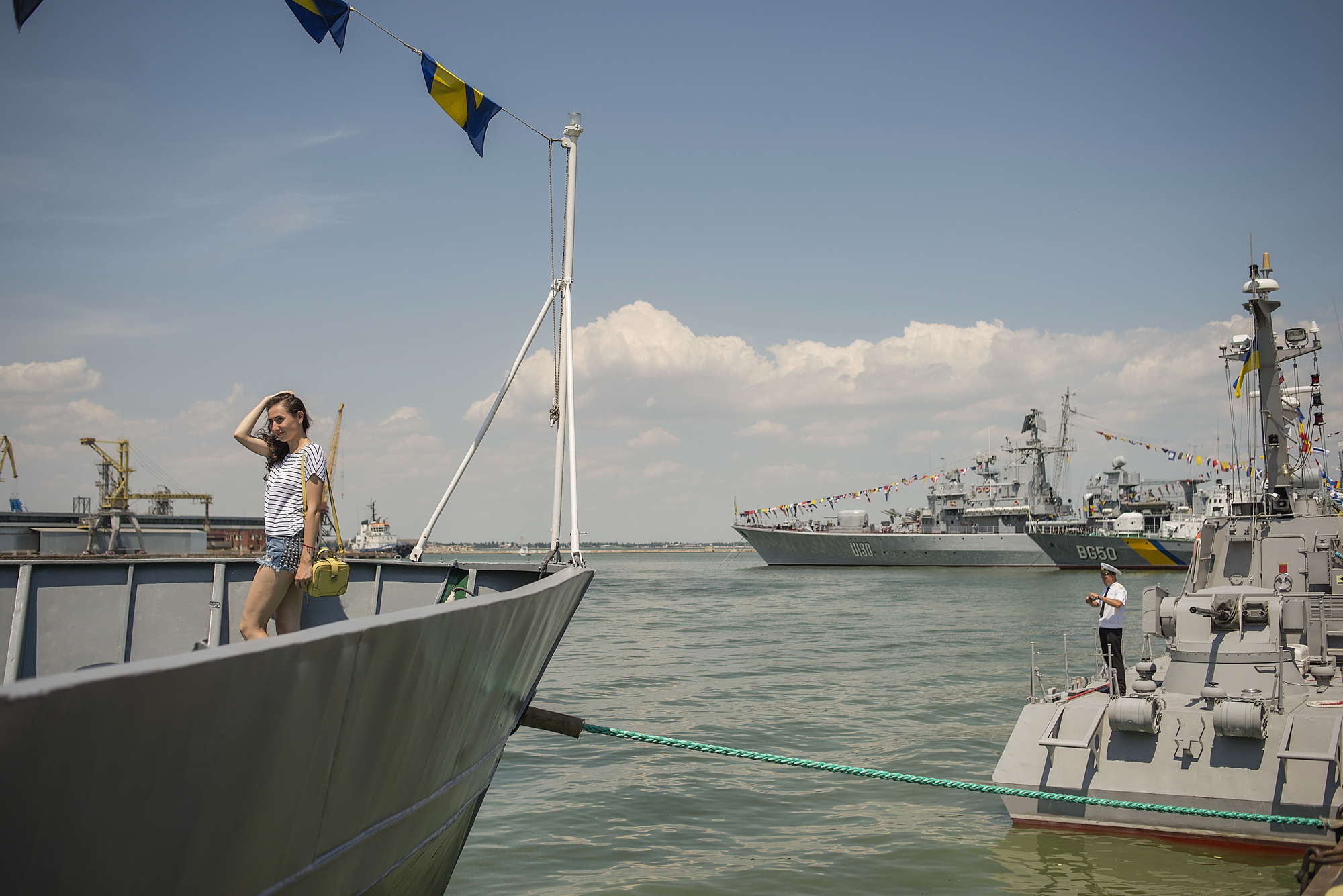
A girl arranges her hair as she is being photographed by a friend. Navy warships are opened to the public for Navy Day, held in Odessa for the second time since Russia's seizure of Crimea in 2014. Odessa, Ukraine
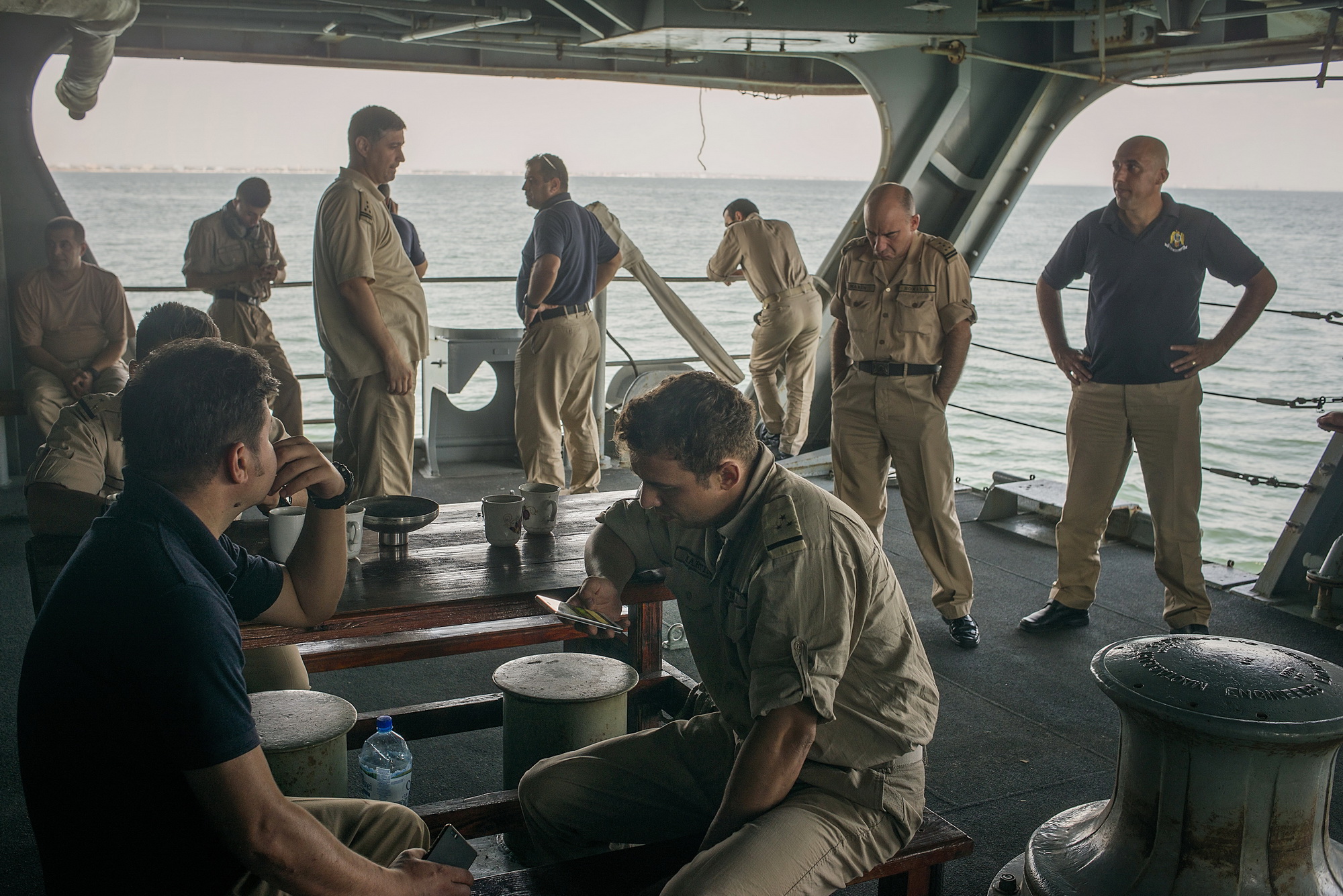
Crew members of Regina Maria warship (the flagship of Romanian Military Navy) relaxing after completing their rehearsals for the following week's Navy Day. Constanta, Romania
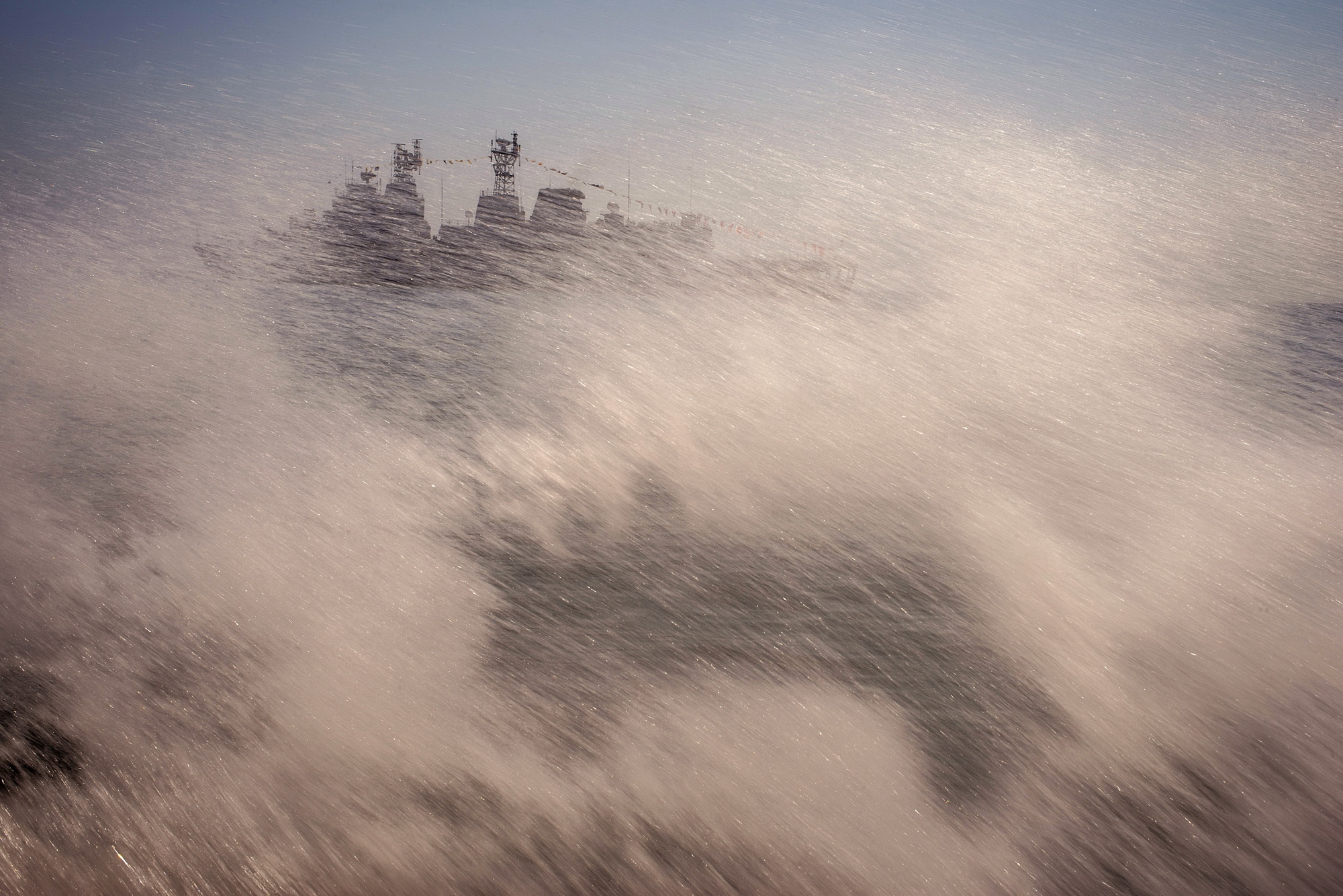
The Regina Maria warship (the flagship of the Romanian Military Navy) seen through the waves of a rapid boat approaching it. Constanta, Romania
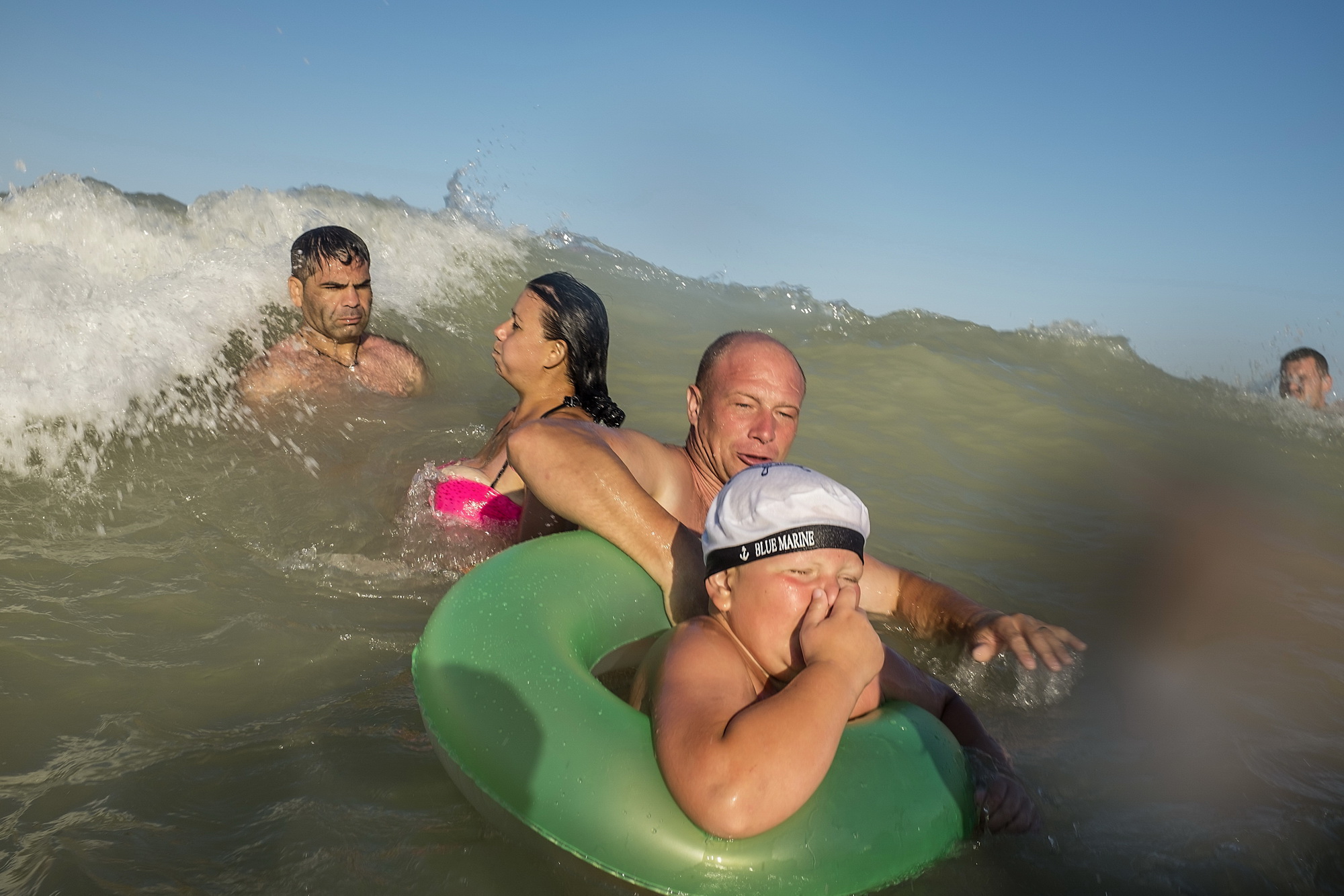
A nudist couple near the wreck of Evanghelia (The Gospel) Greek shipwrecked in 1968 in the Black Sea. After various failed attempts to remove it from the water, it eventually become the symbol of the resort - a crowded mixture of middle class and hippies. Costinesti, Romania
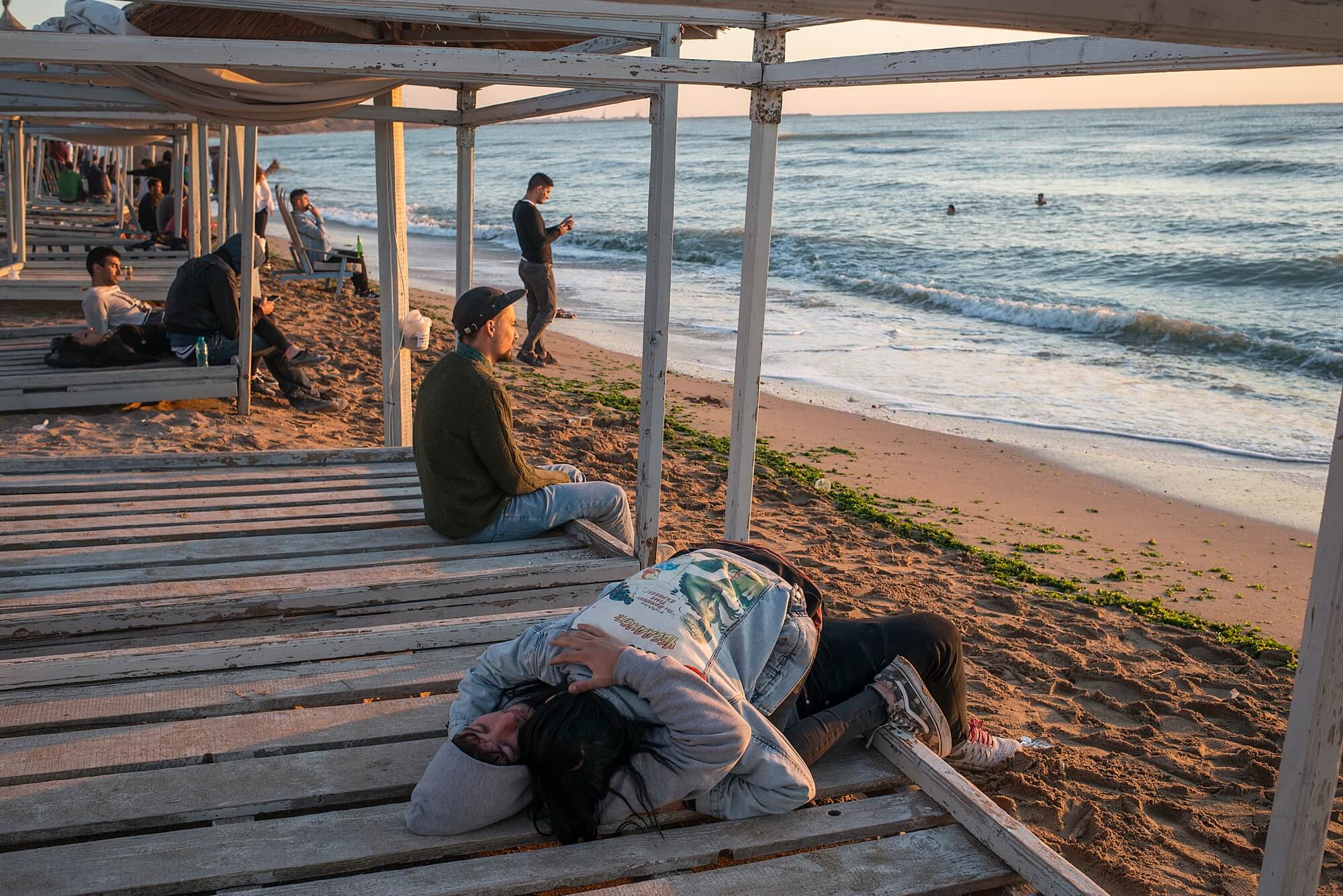
Young people who've spent the night partying sit on the shore enjoying the sunrise, a ritual for almost all visitors to this small 'hippyish' resort, close to the Bulgarian border. Vama Veche, Romania
The Black Sea is at the heart of centuries of warfare, turmoil and historical drama. This site of totalitarian regimes and young democracies is a melting pot of ethnic minorities and a point of convergence for Europe, Asia and the Middle East. Its waters, shores and inland suffered massive transformations as the surrounding countries tried to tame, reshape and reinforce the areas around the coast while exploiting its resources for trade, defence and tourism. Russia’s takeover of Crimea in 2014 and insurrection in east Ukraine have transformed the foreign policy in West Europe, the U.S, Turkey and the former Soviet Union. Now countries from the Baltics to Turkey experience an escalation of military, naval and air force activity. In May 2016, NATO opened a missile defence site in Romania aimed at protecting Europe from ballistic rockets. This angered Russia, which opposes a strong foreign military presence in its former sphere of influence. “We have slid back into a new Cold War,” said Russian Prime Minister Dmitry Medvedev. But this divide no longer runs through central Europe. With Ukraine, Moldova and Georgia tore apart by frozen conflicts, the Iron Curtain has moved eastward to the Black Sea. Yet for generations, people from countries surrounding the sea have worked hard all year with one dream in their minds: to spend a holiday on its shores. Its beaches and waters are the trophies for millions who assault the seaside every summer. Whatever political upsurge these citizens experience at home, where they find love, freedom and memories to treasure. I was born at the seaside in Romania and am fascinated by the sea and its power over people. Since 2010 I have been documenting the role of the Black Sea in the countries and separatist republics that share its basin, seen in the pictures below. Signs of historic conflicts remain all over the shores: from World War II seafront bunkers turned into bars in Romania, to sandy beaches shelled in the 1990s in Abkhazia, which is packed with Russian tourists in the summer. Here wrecked battleships, parades of naval strength and war games are a background to tourists’ long sunny days at the beach, in a landscape where leisure and tension entwine.

